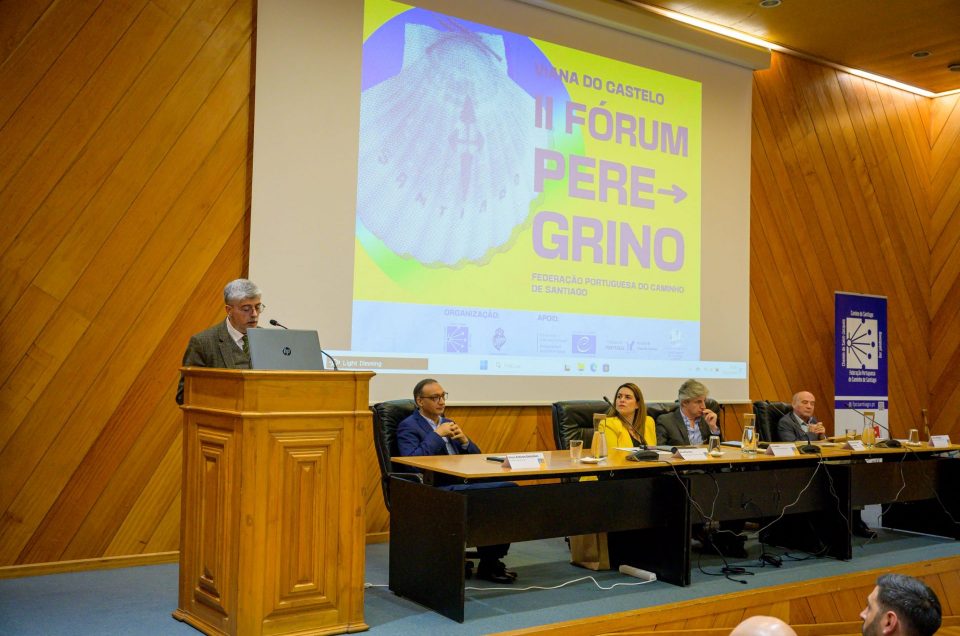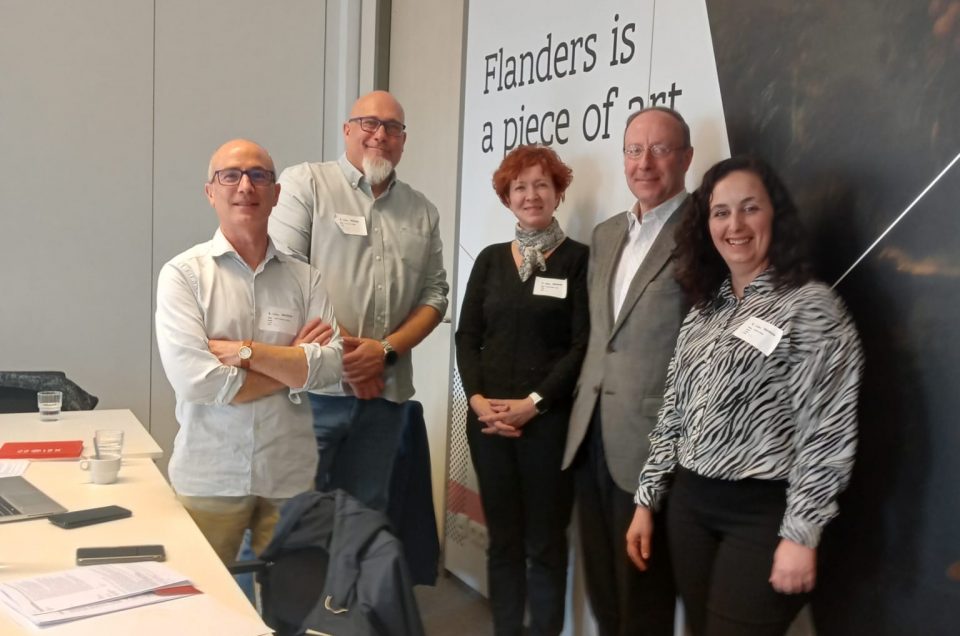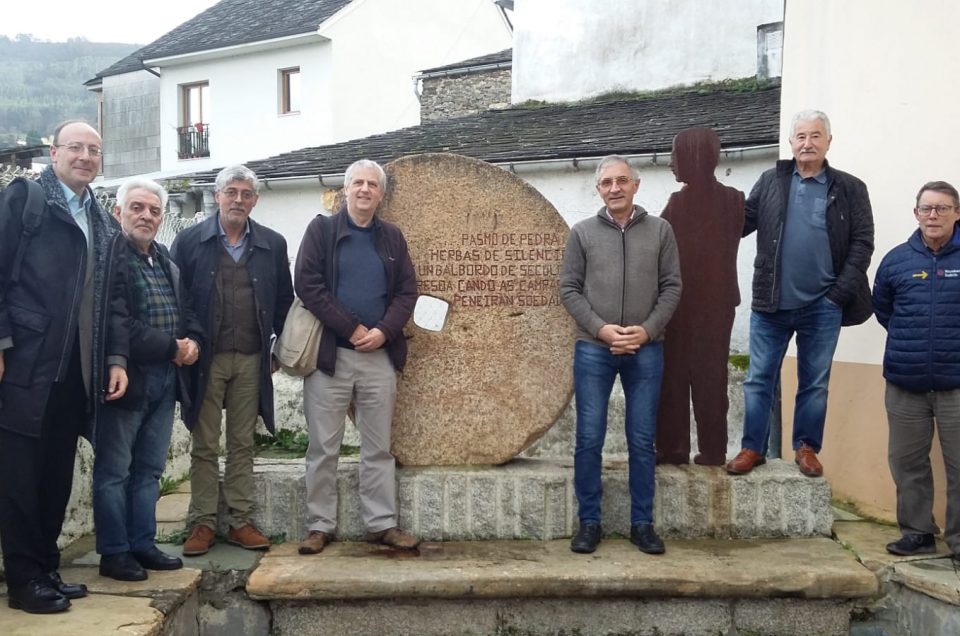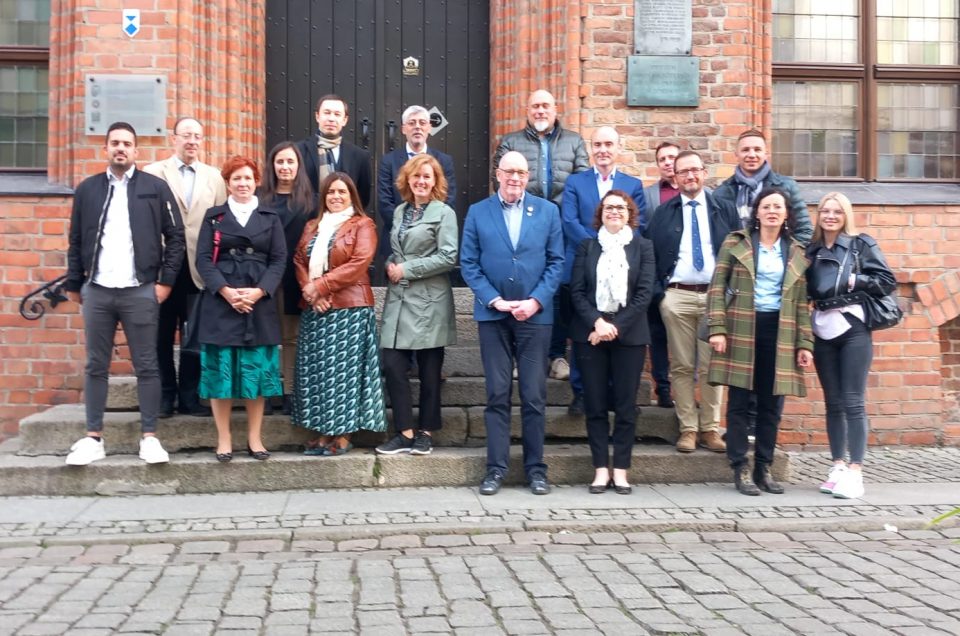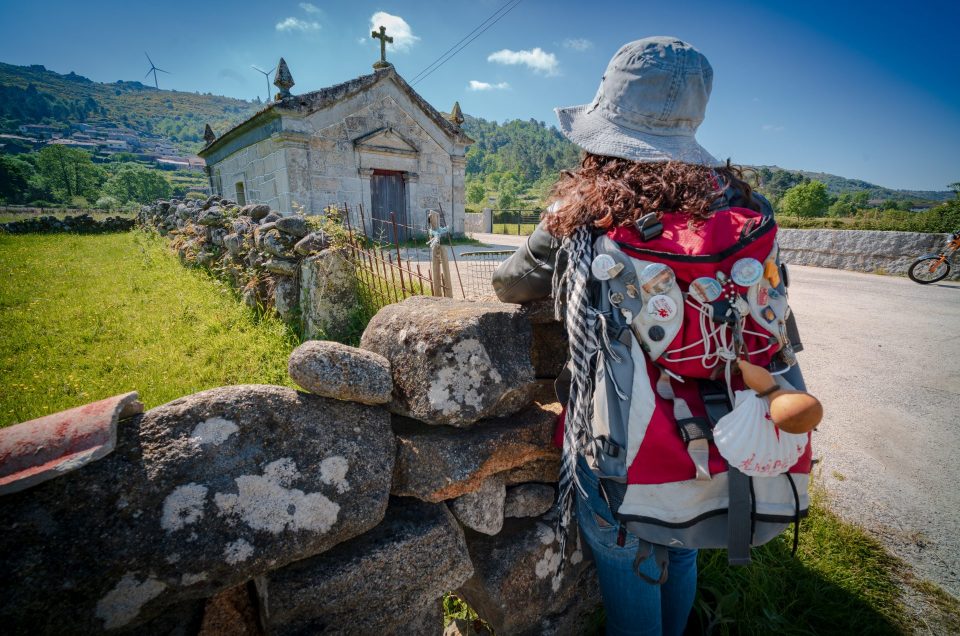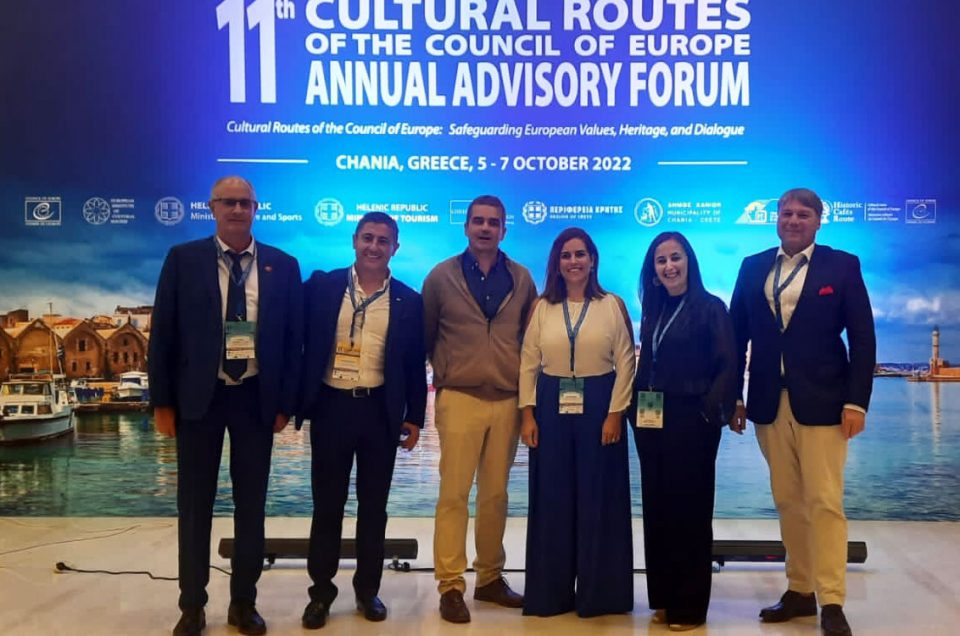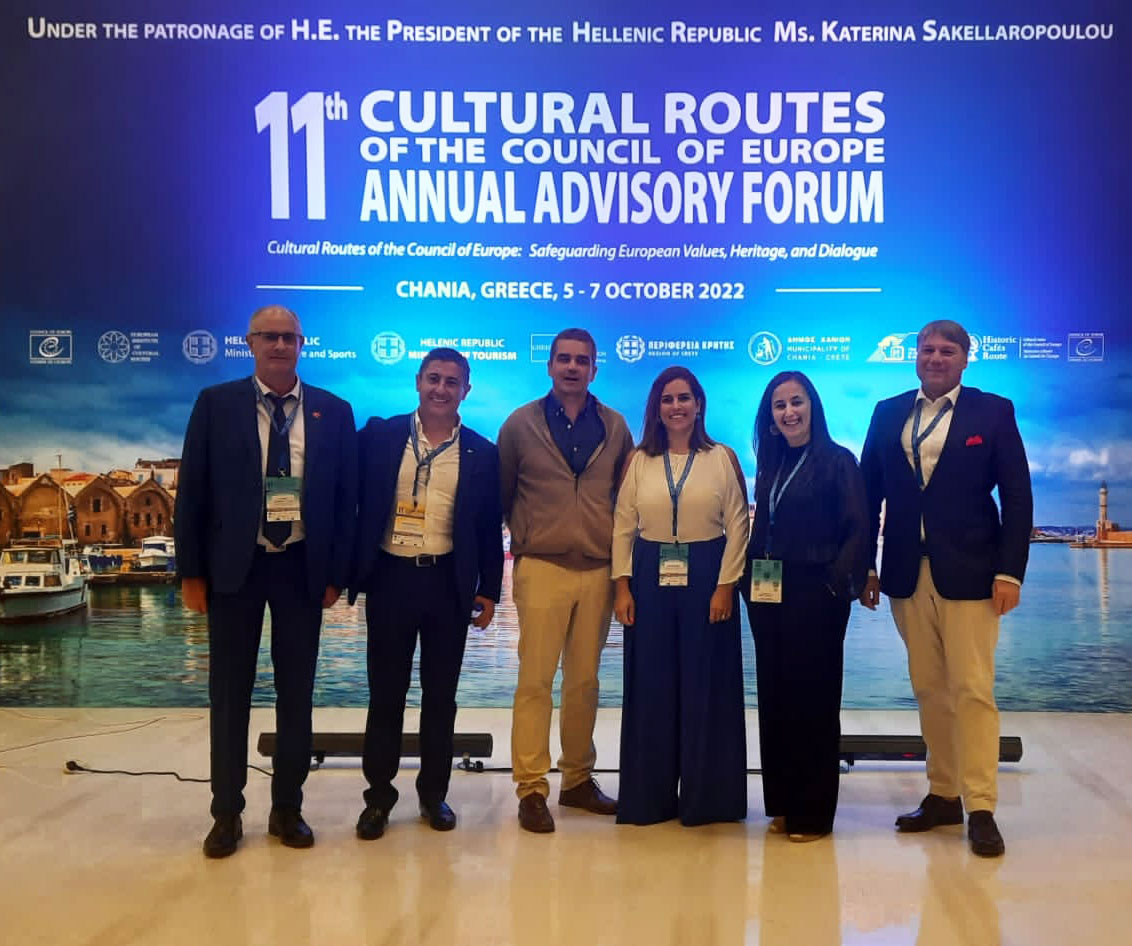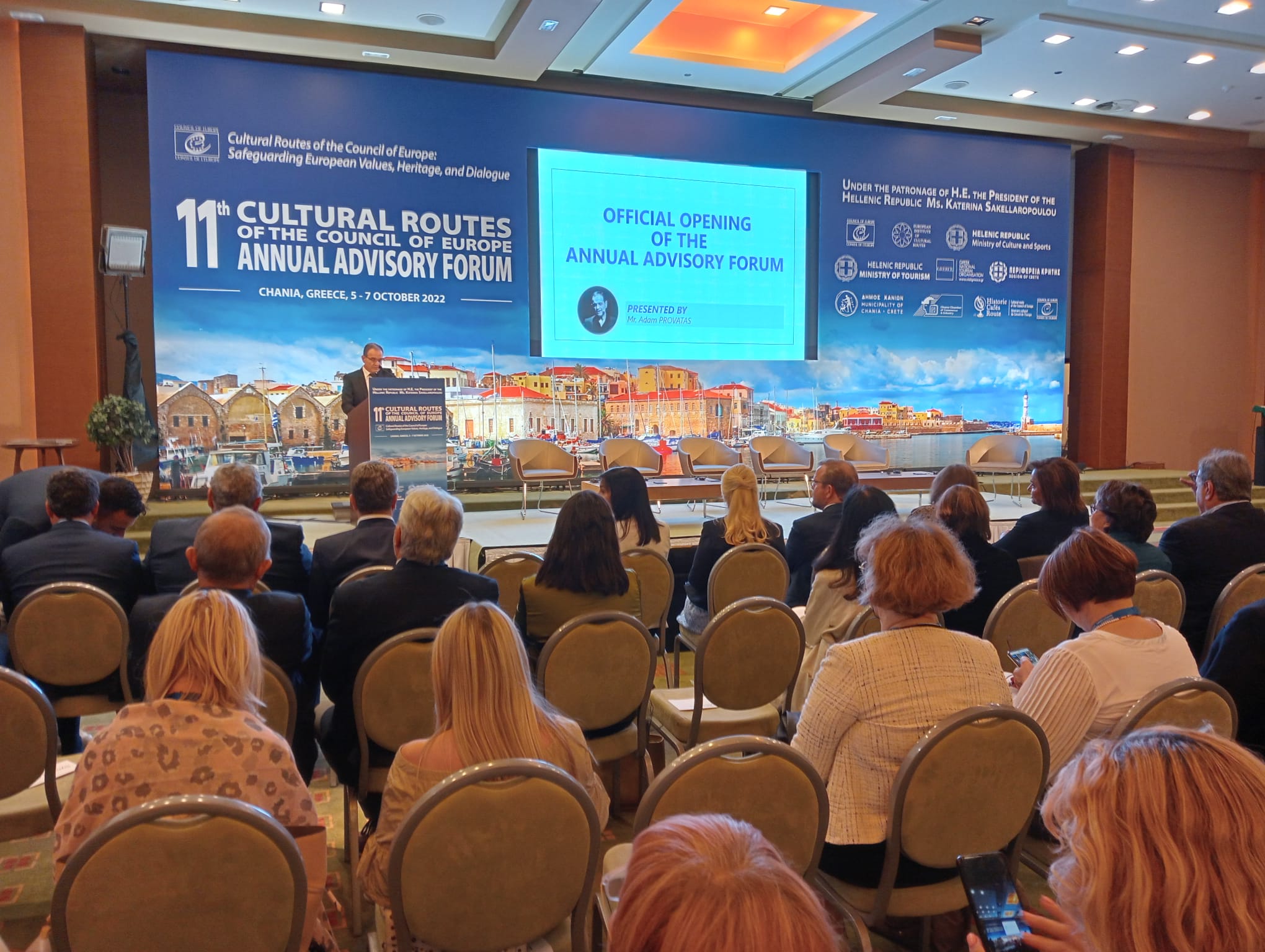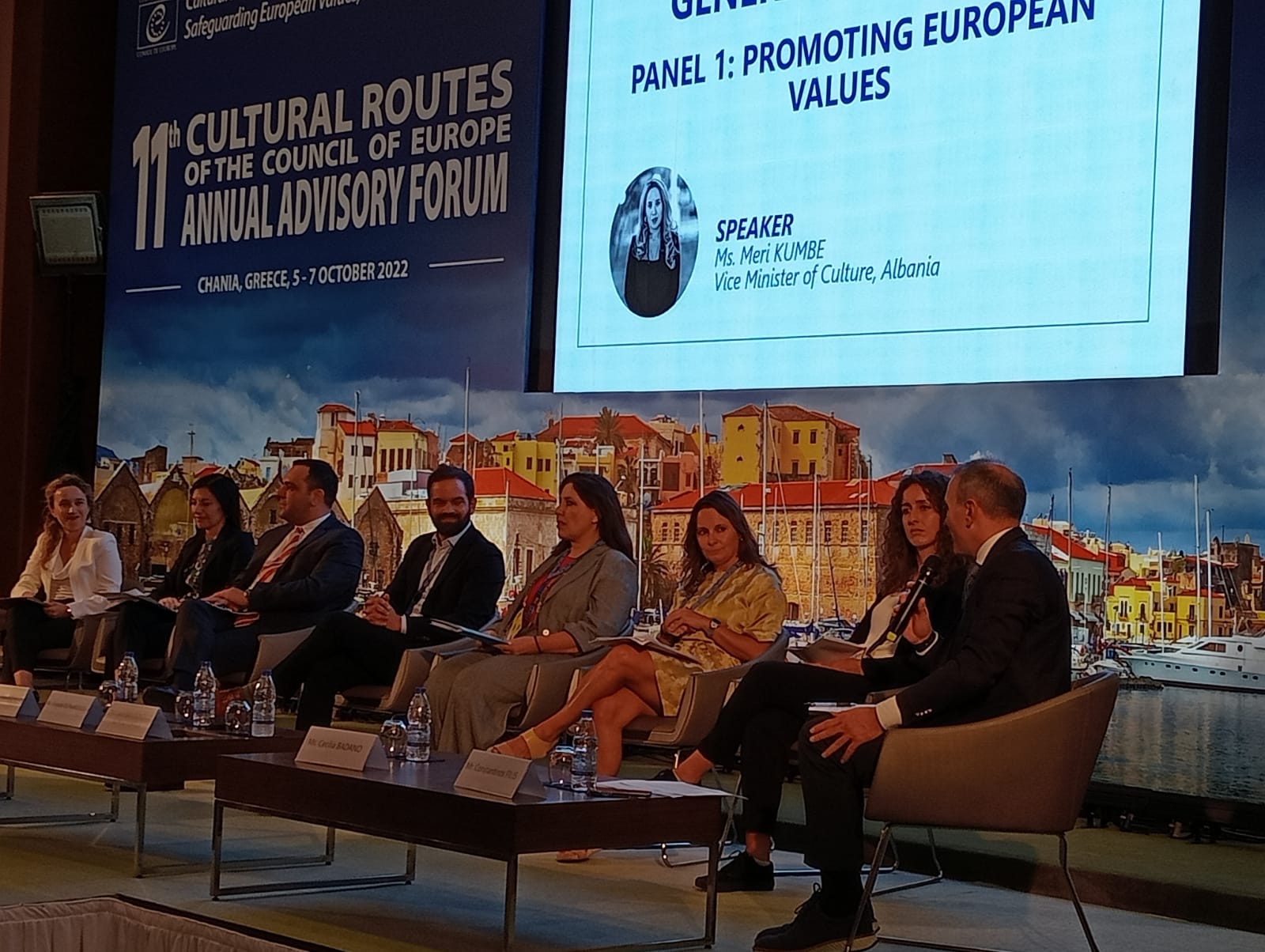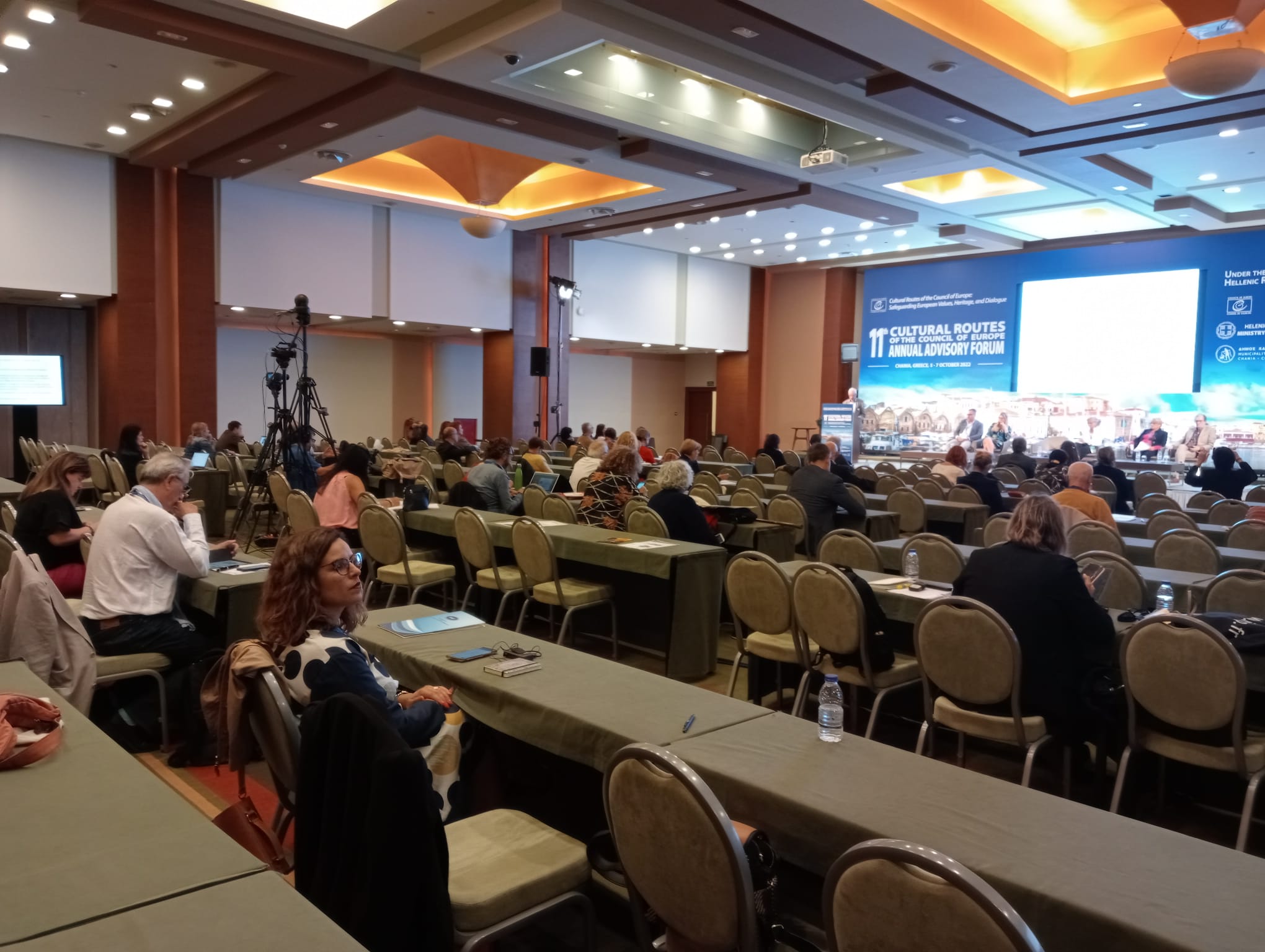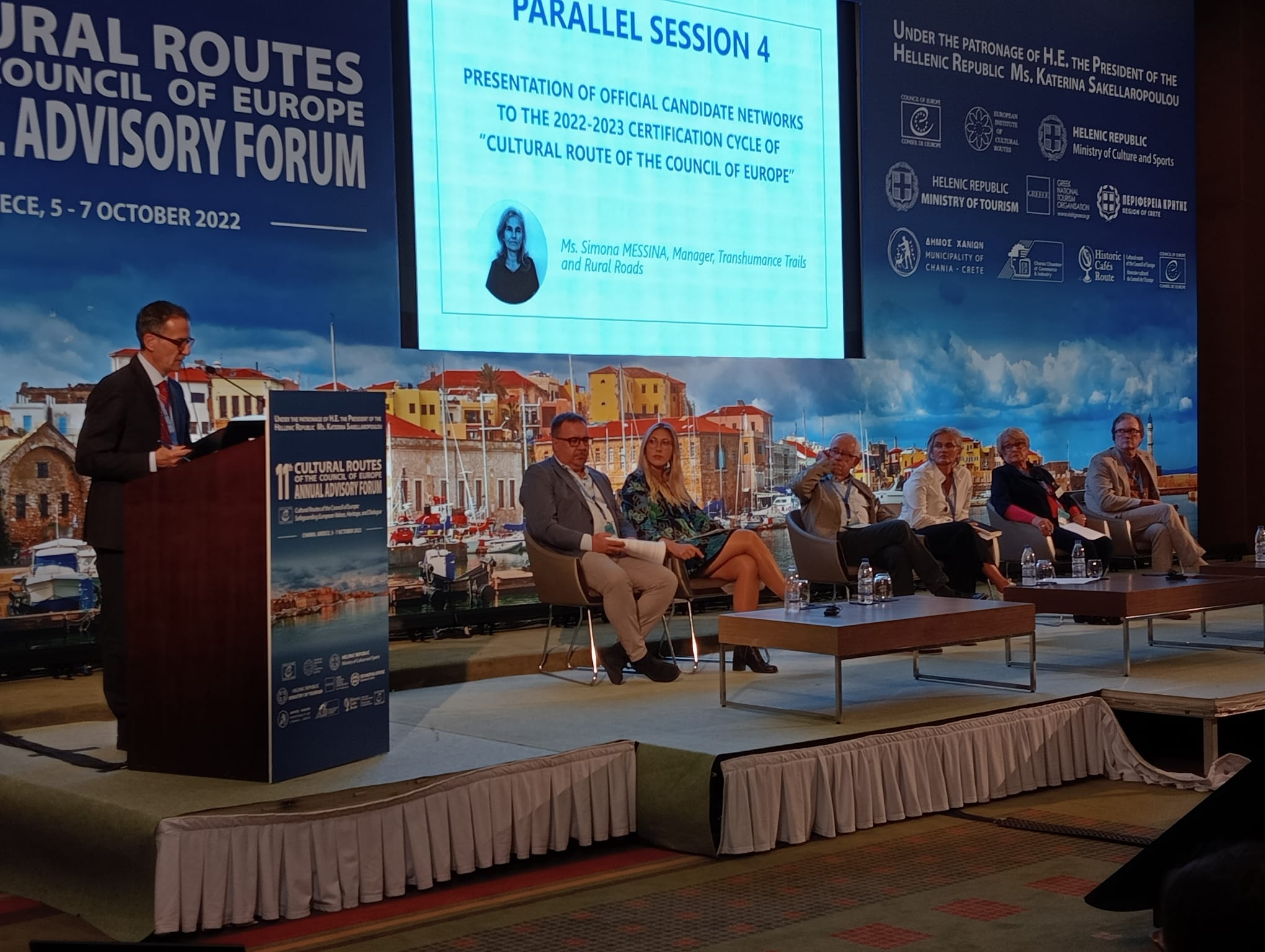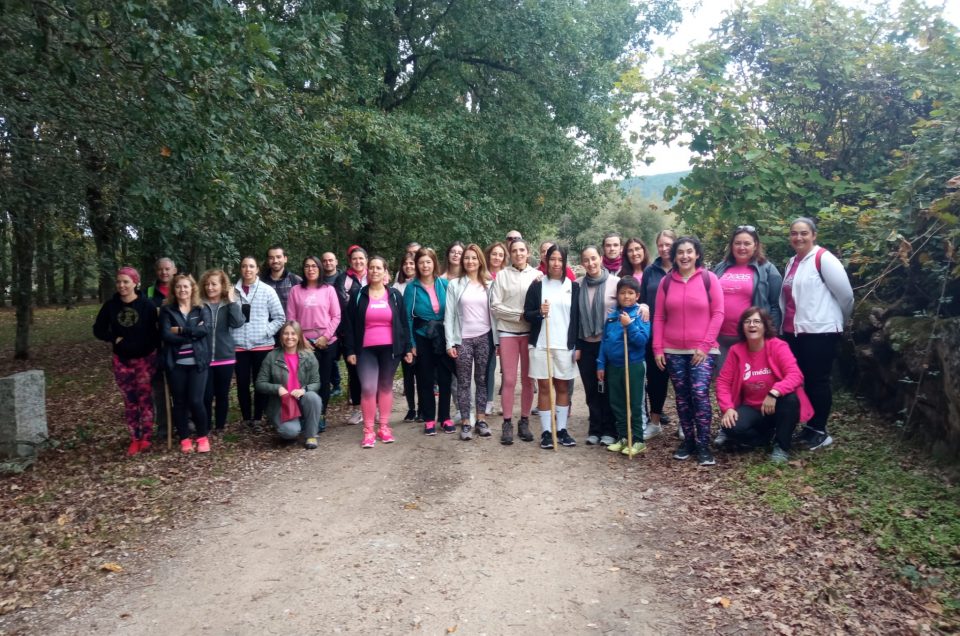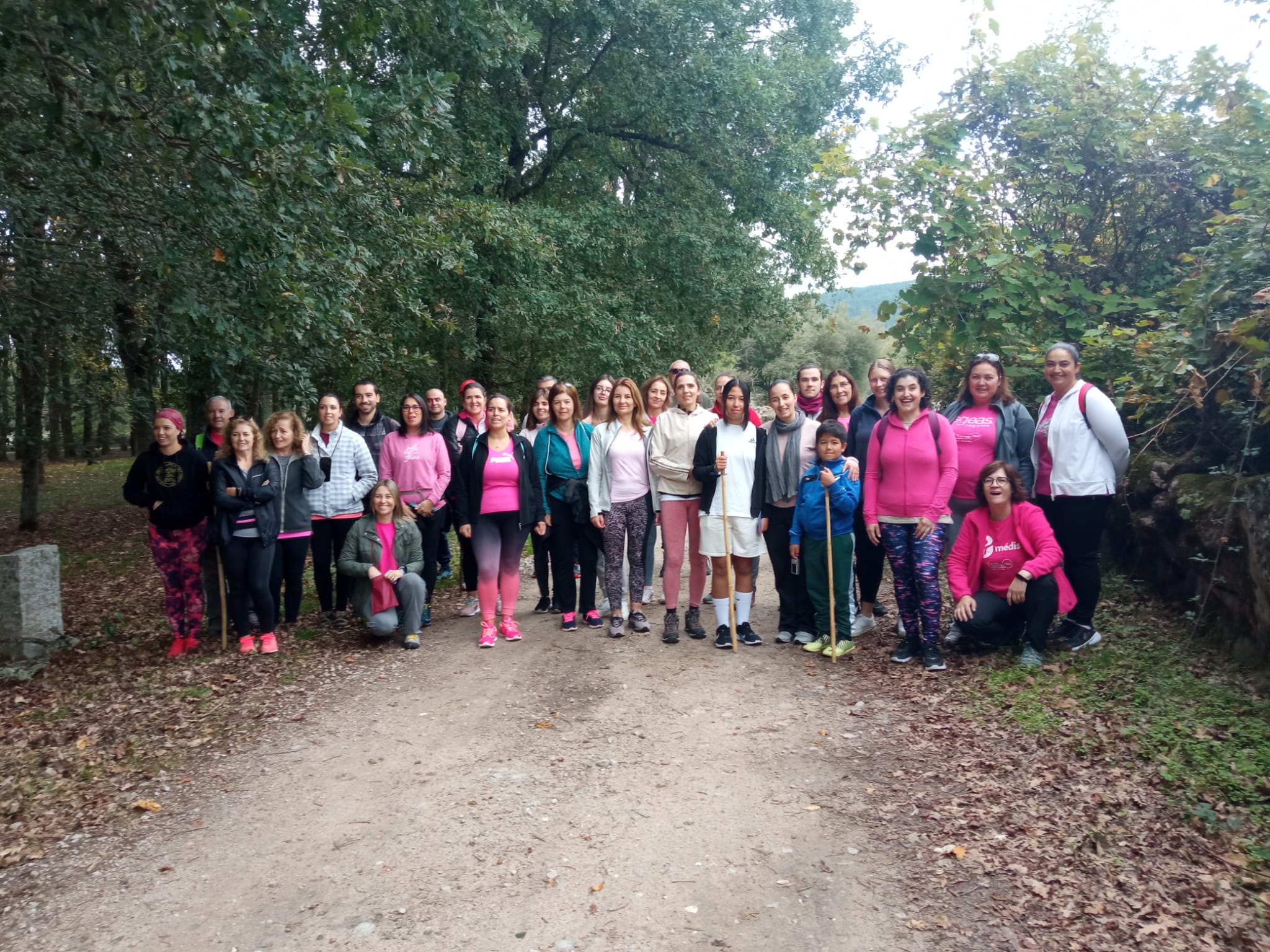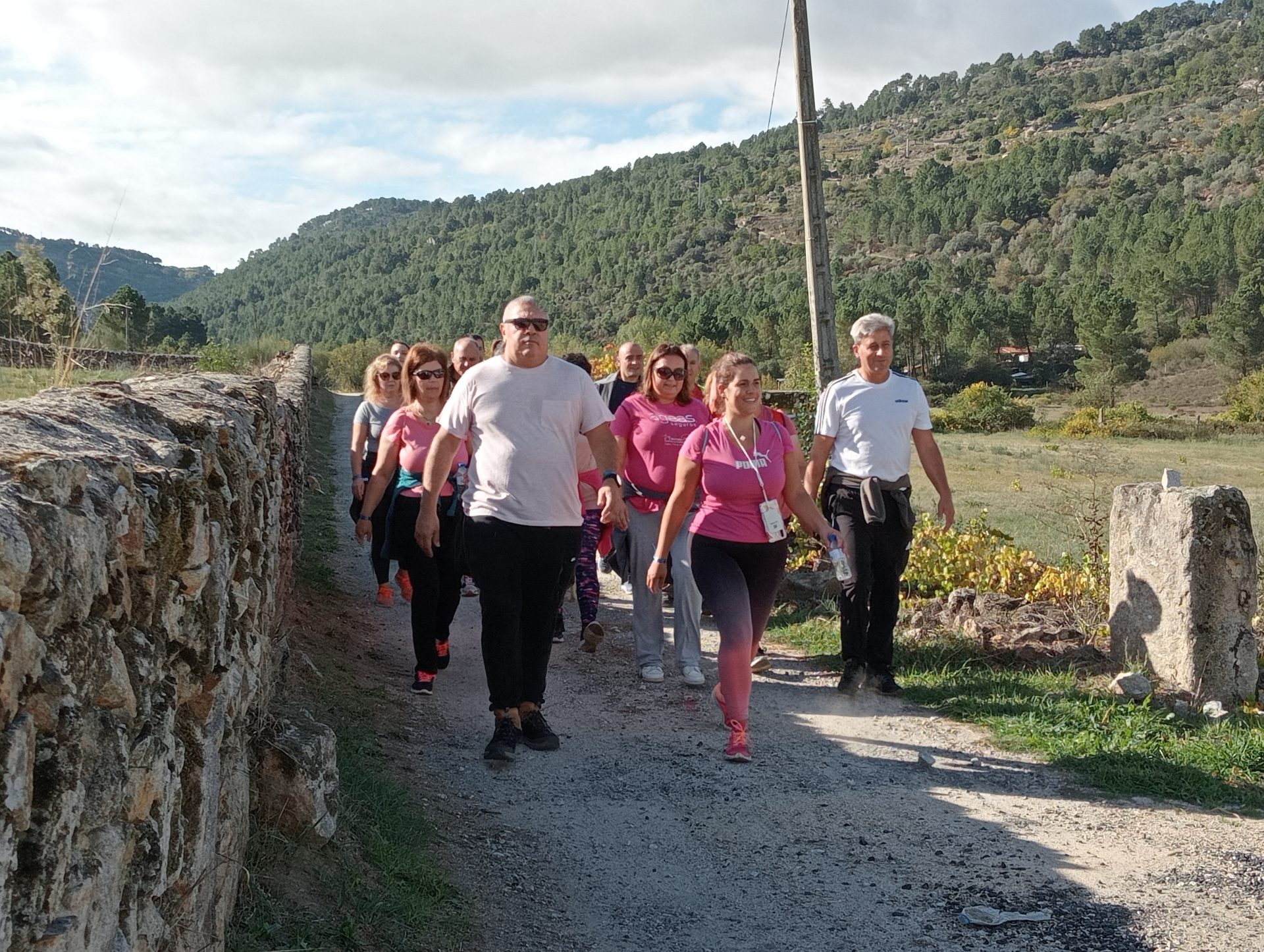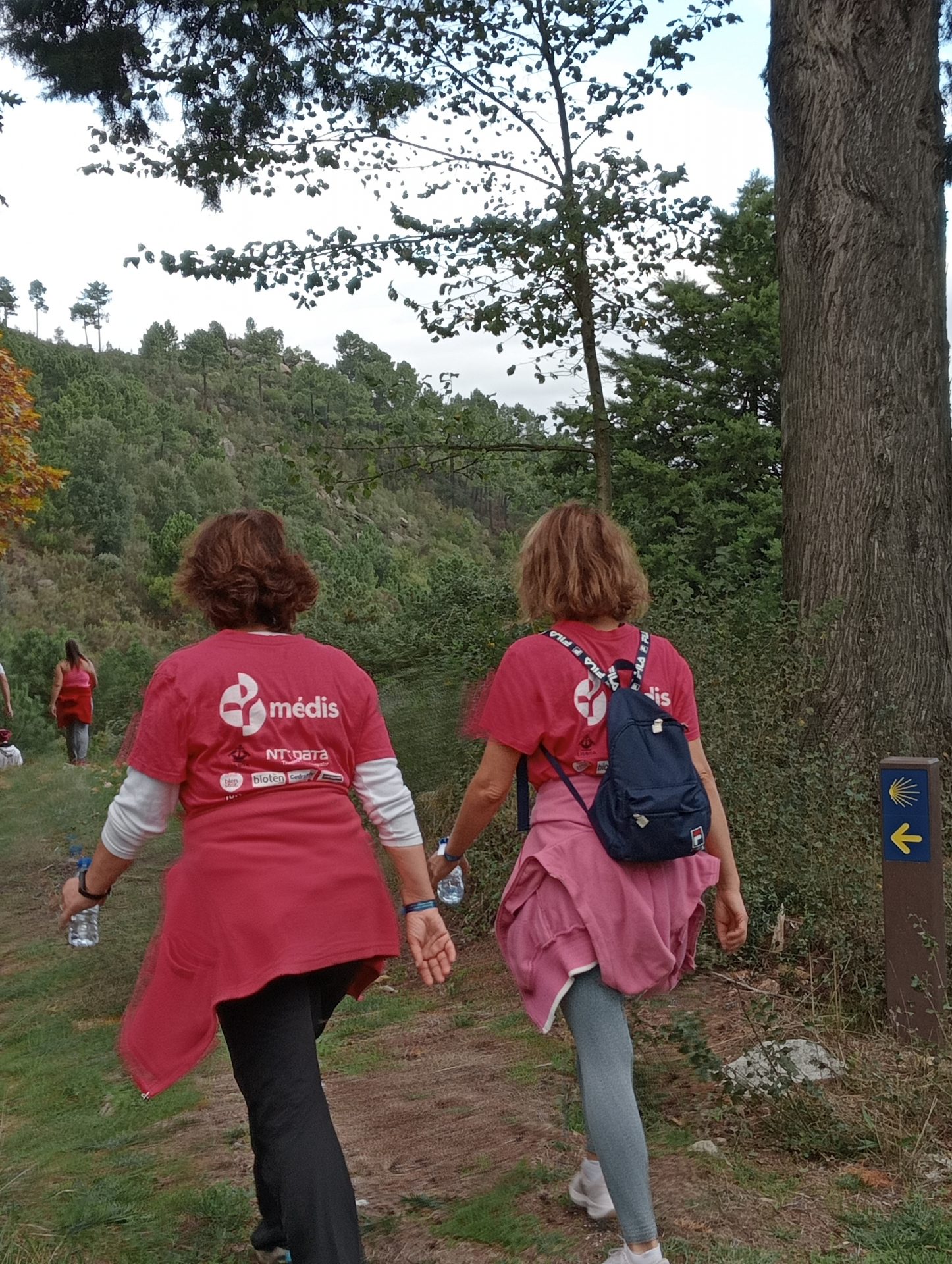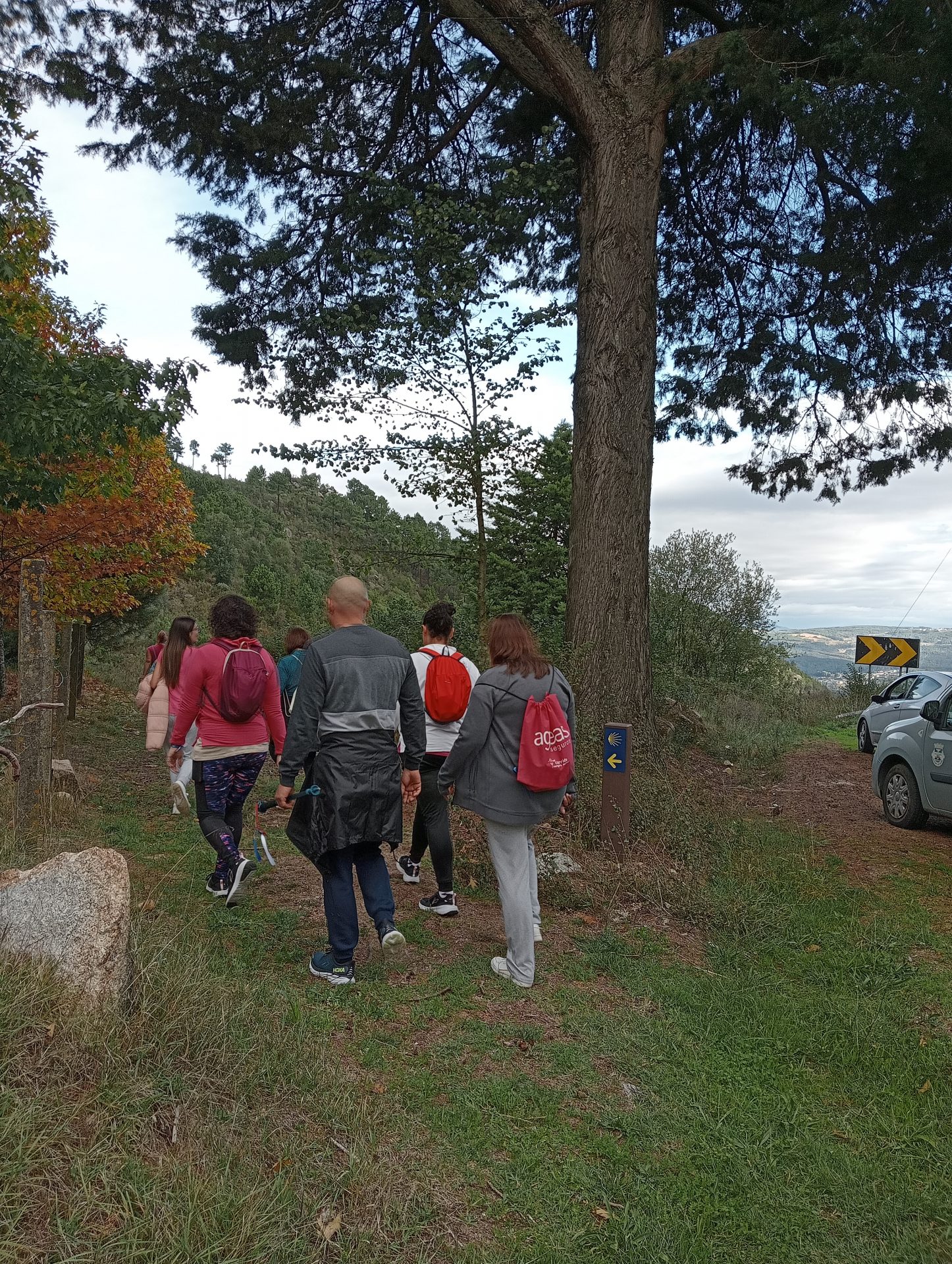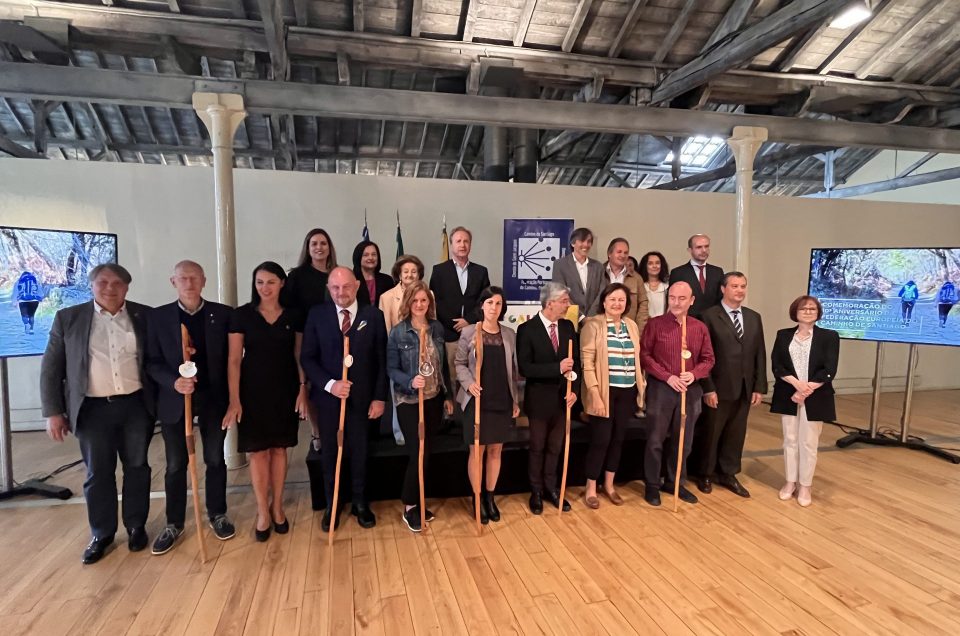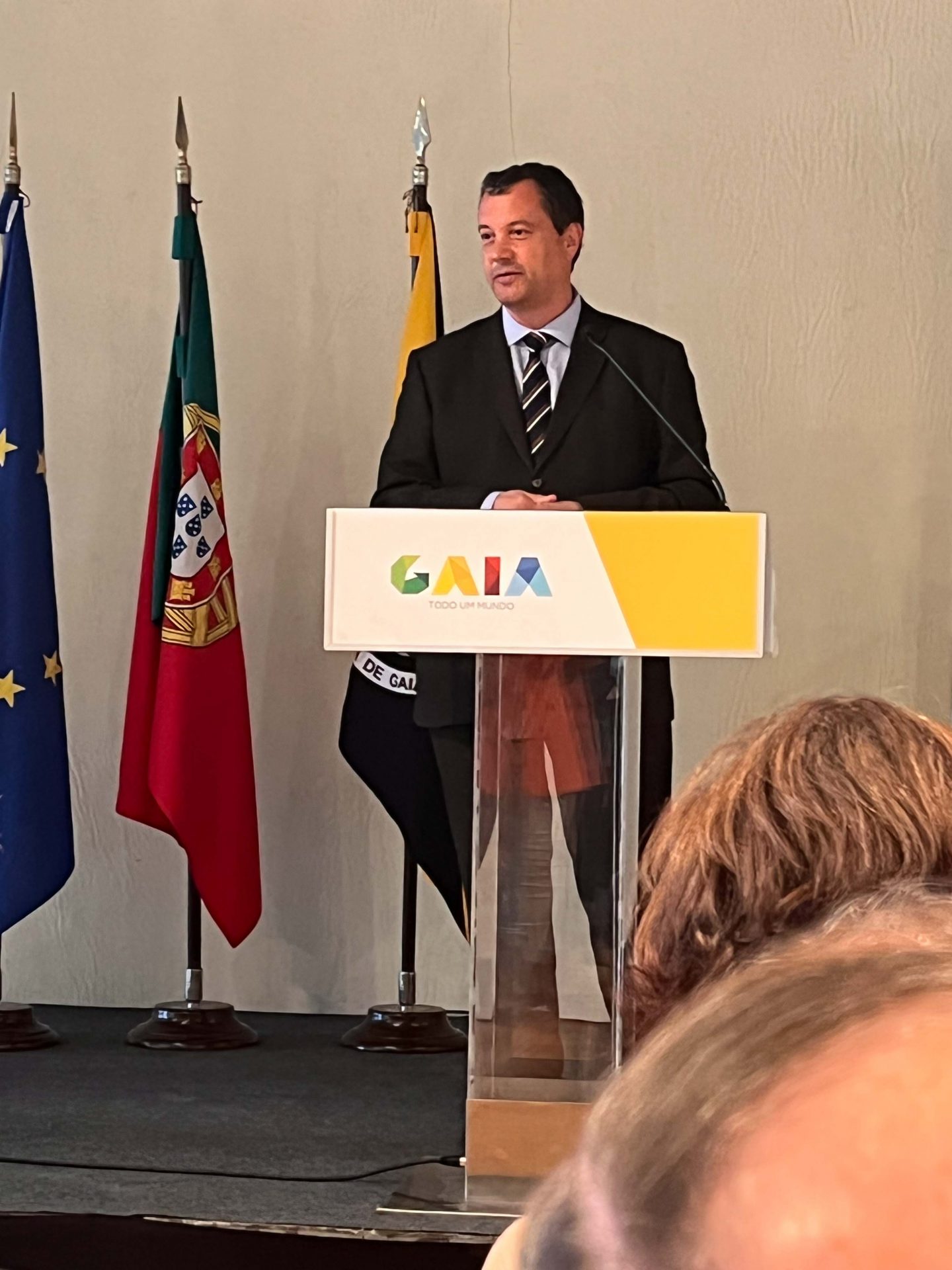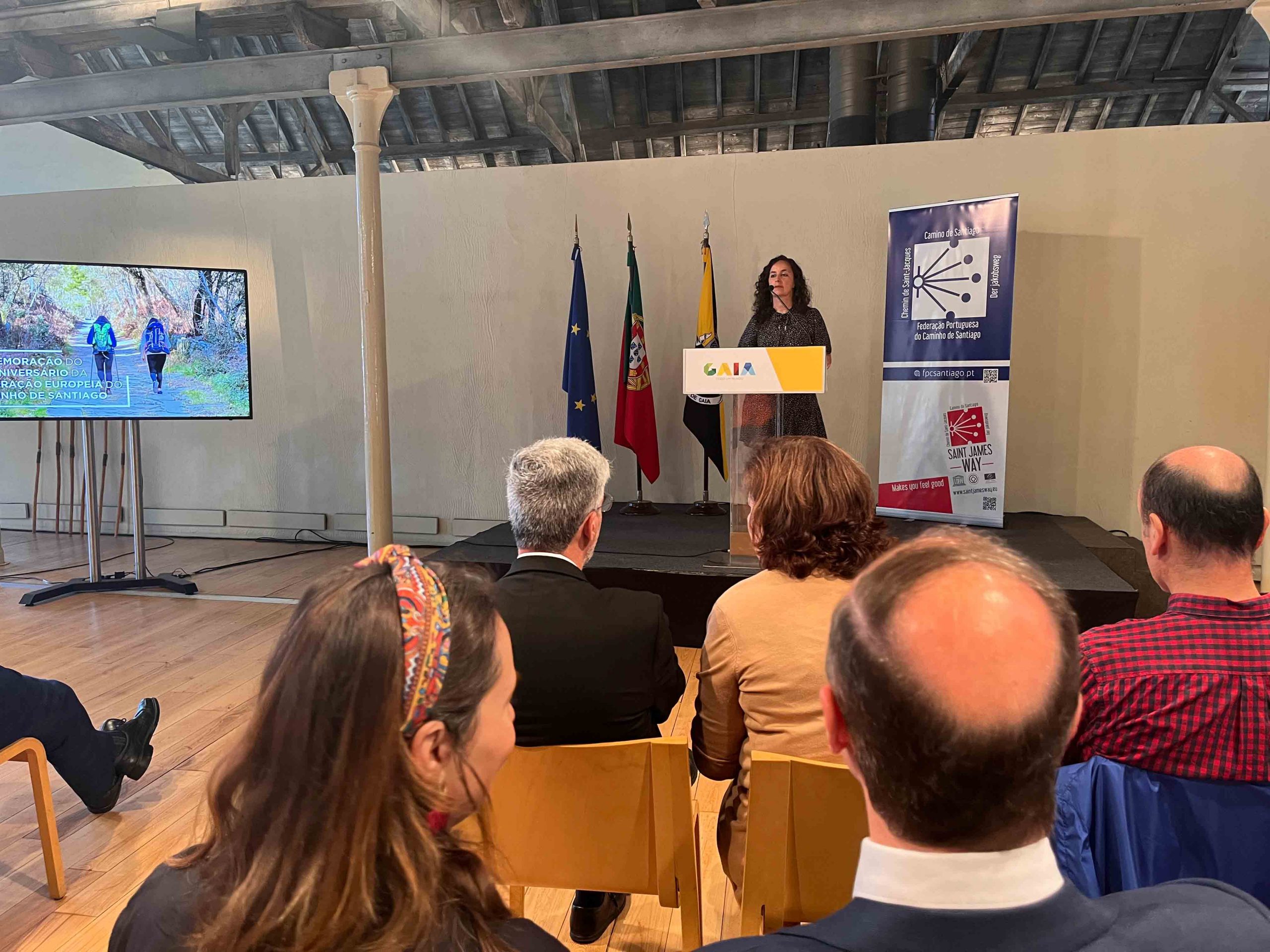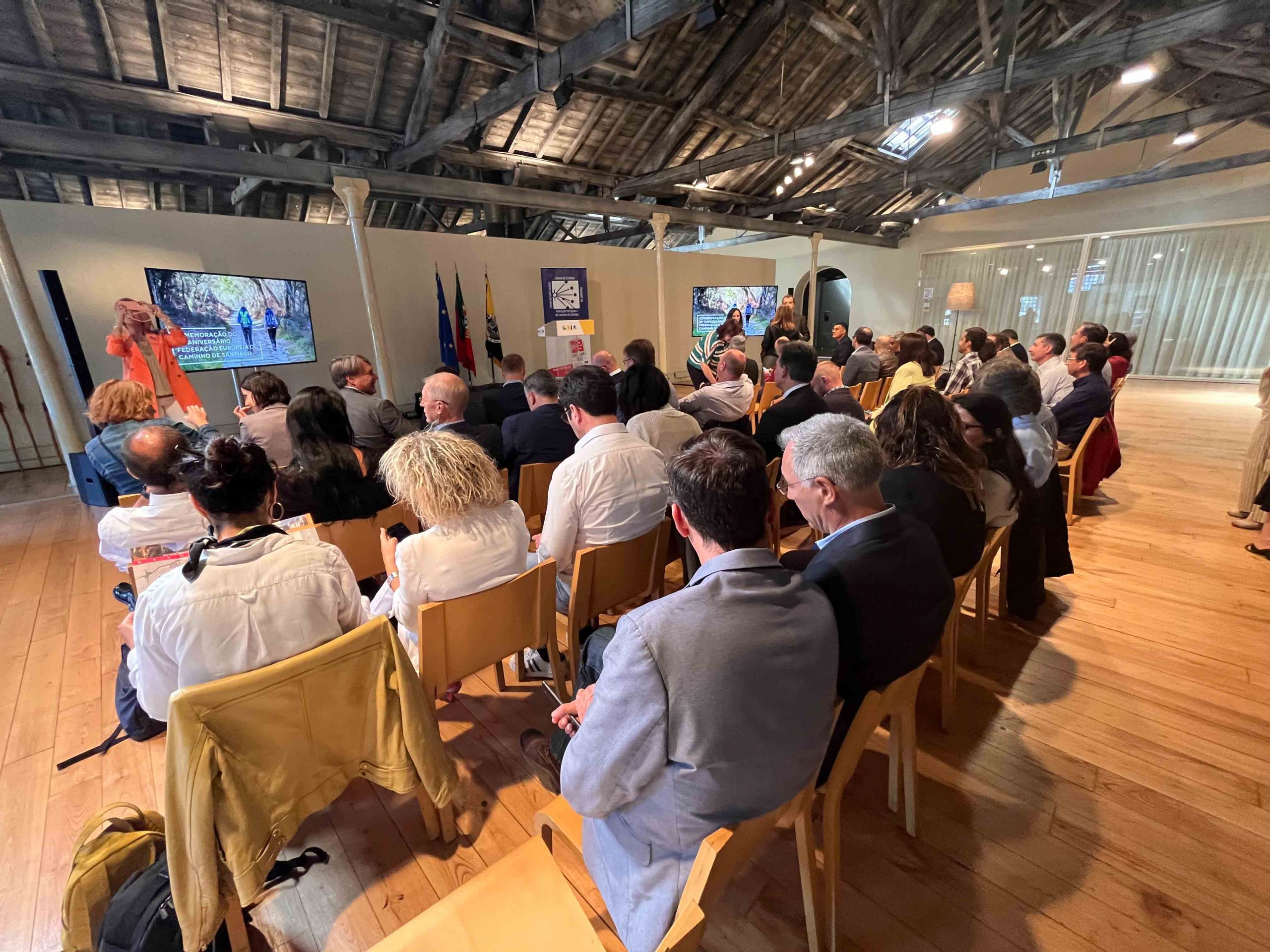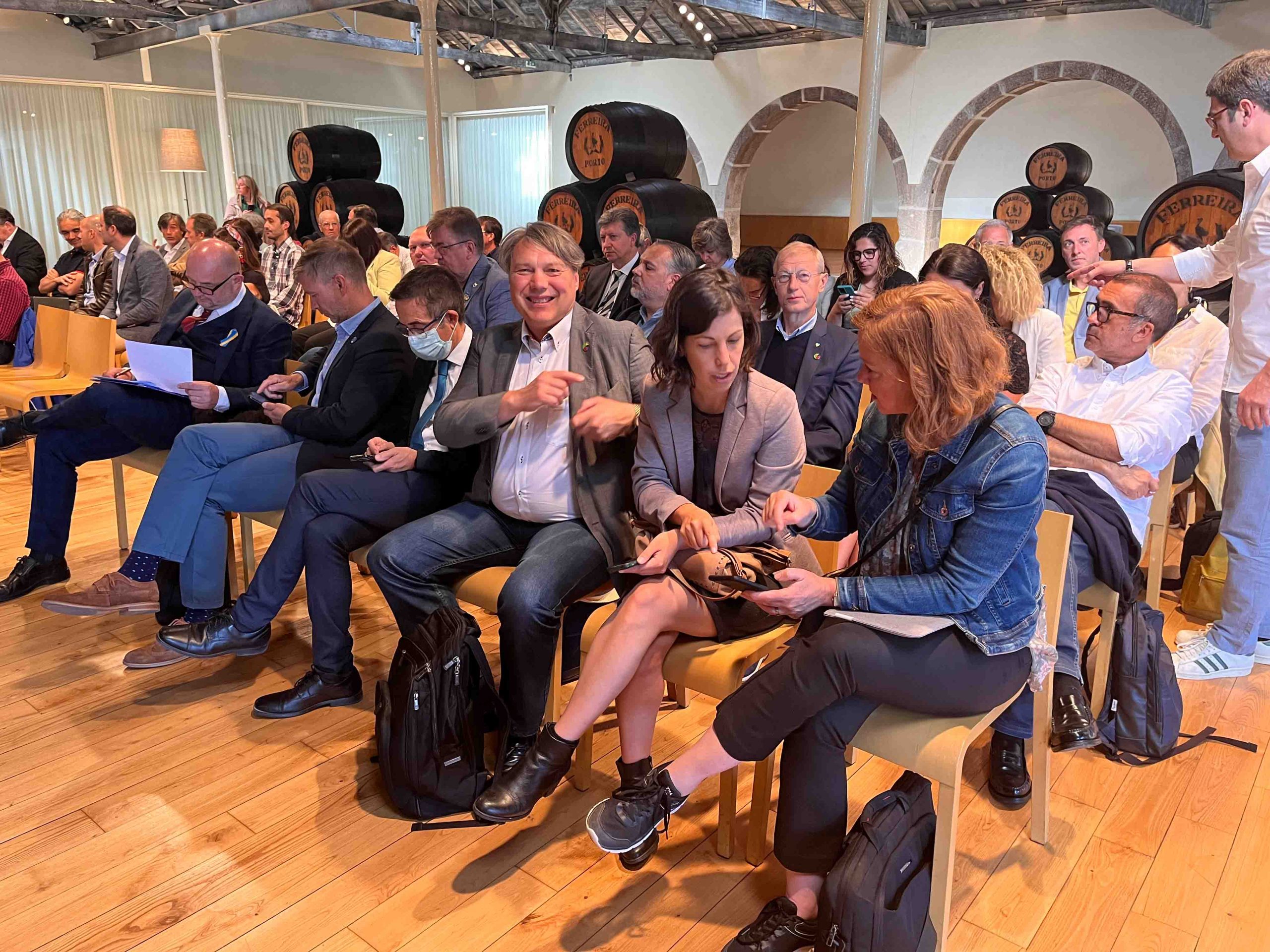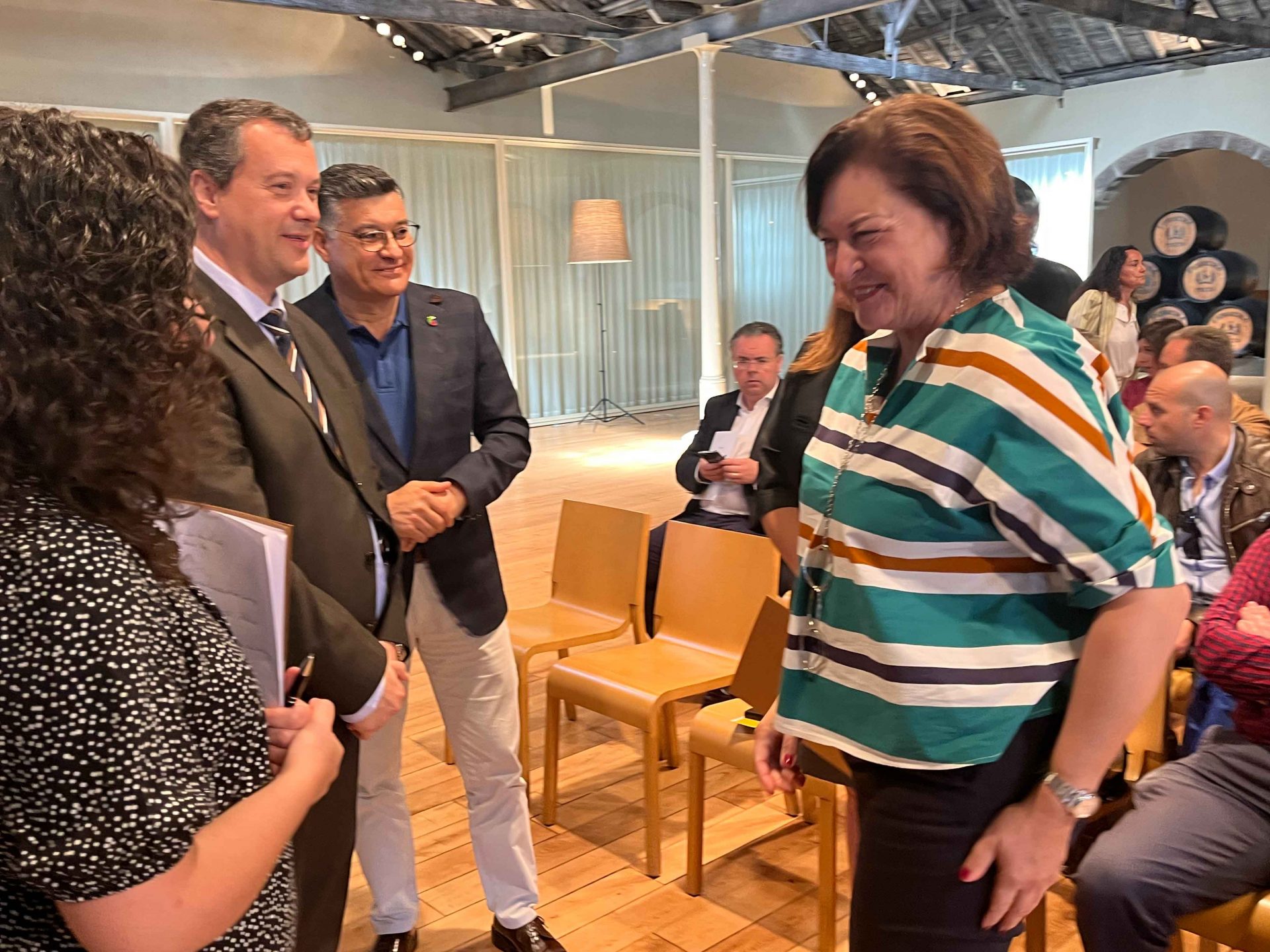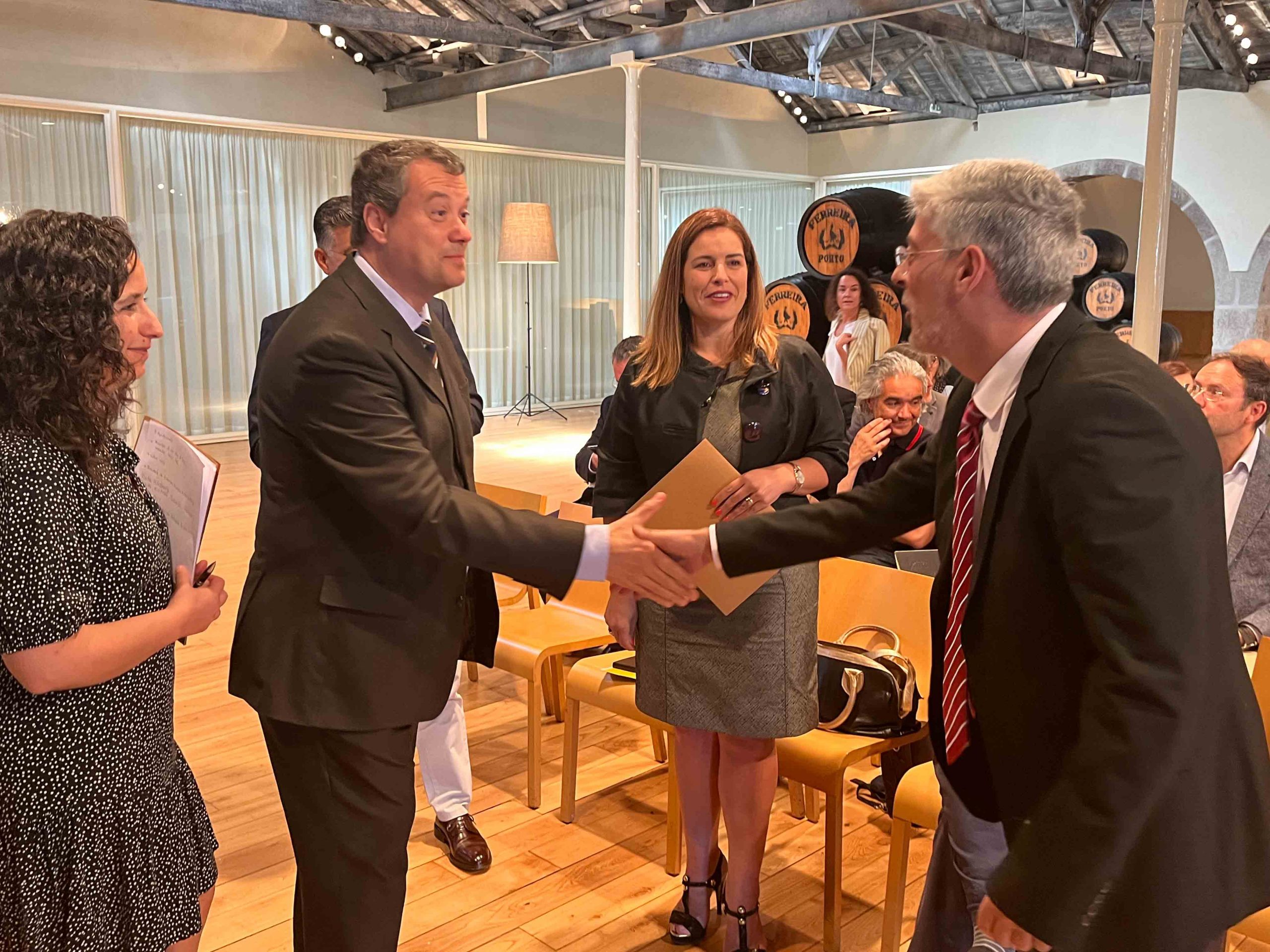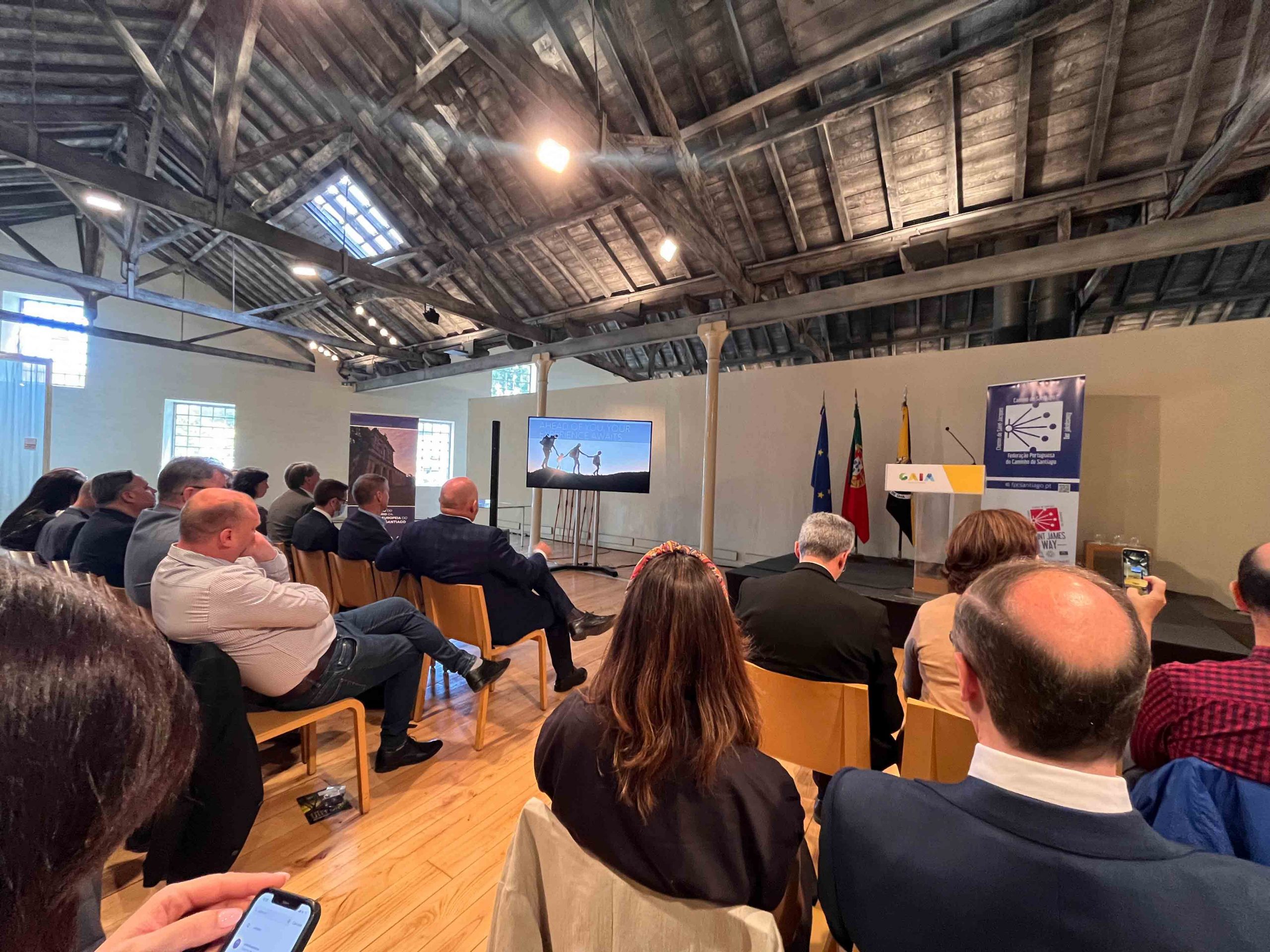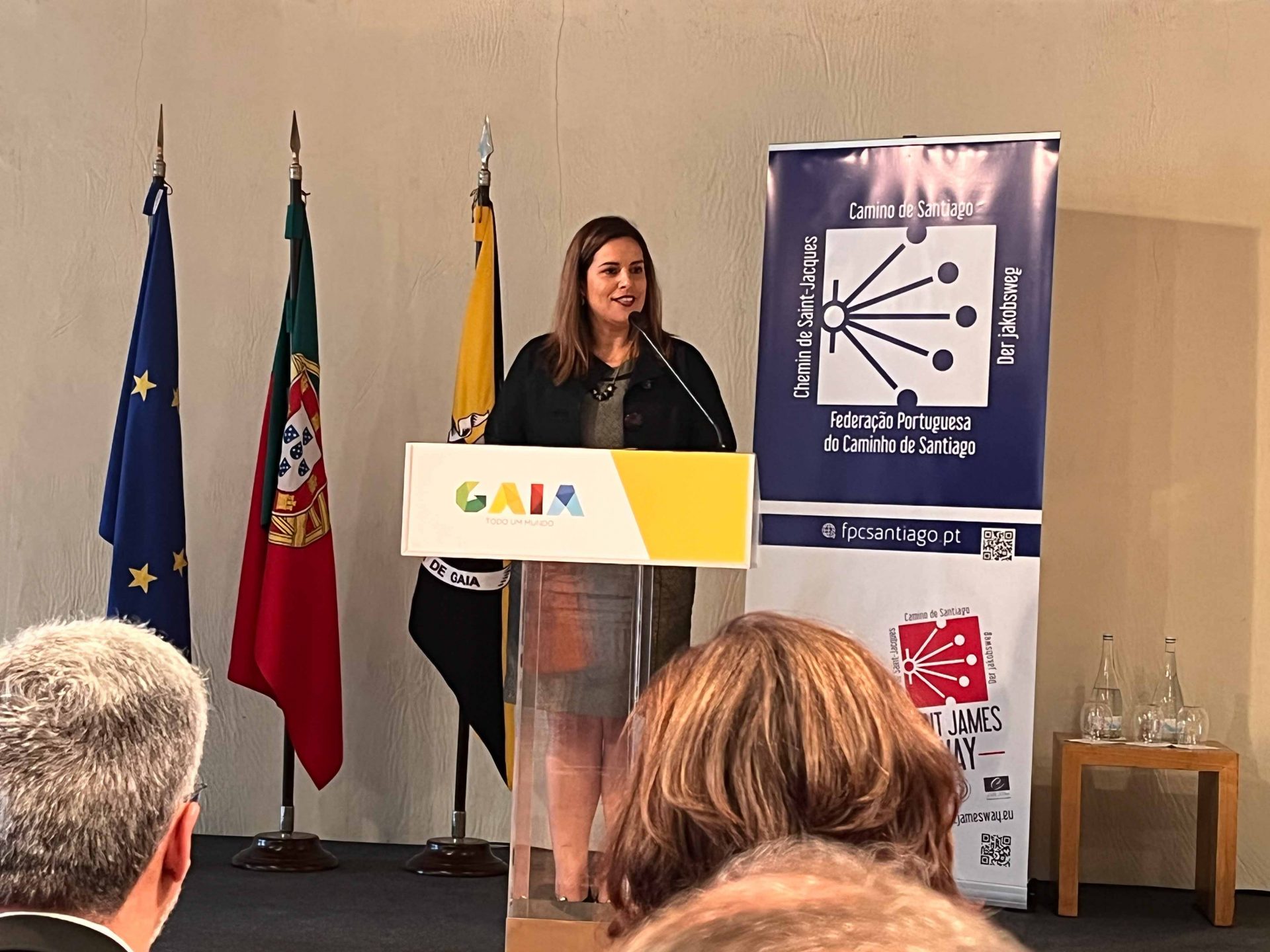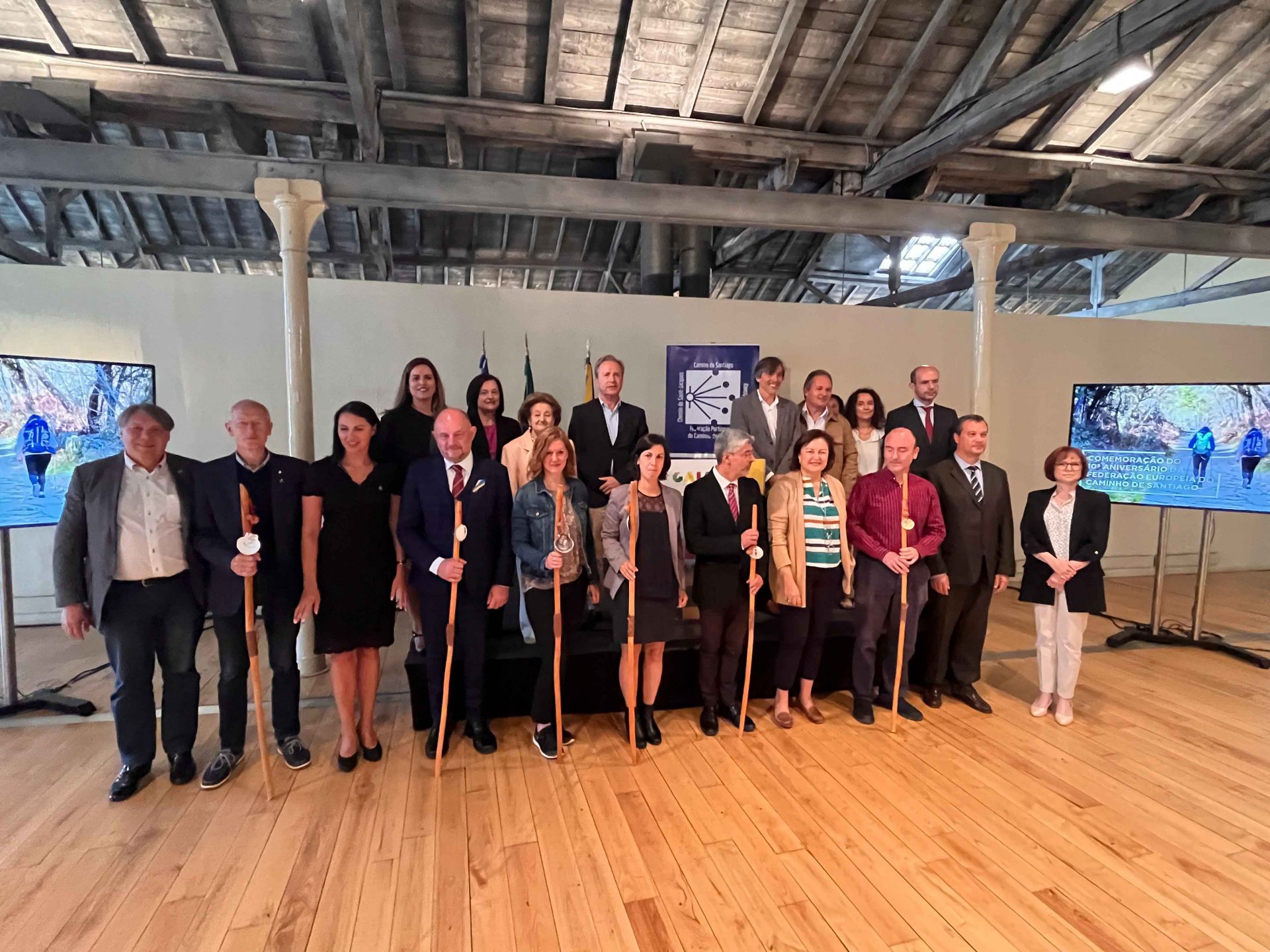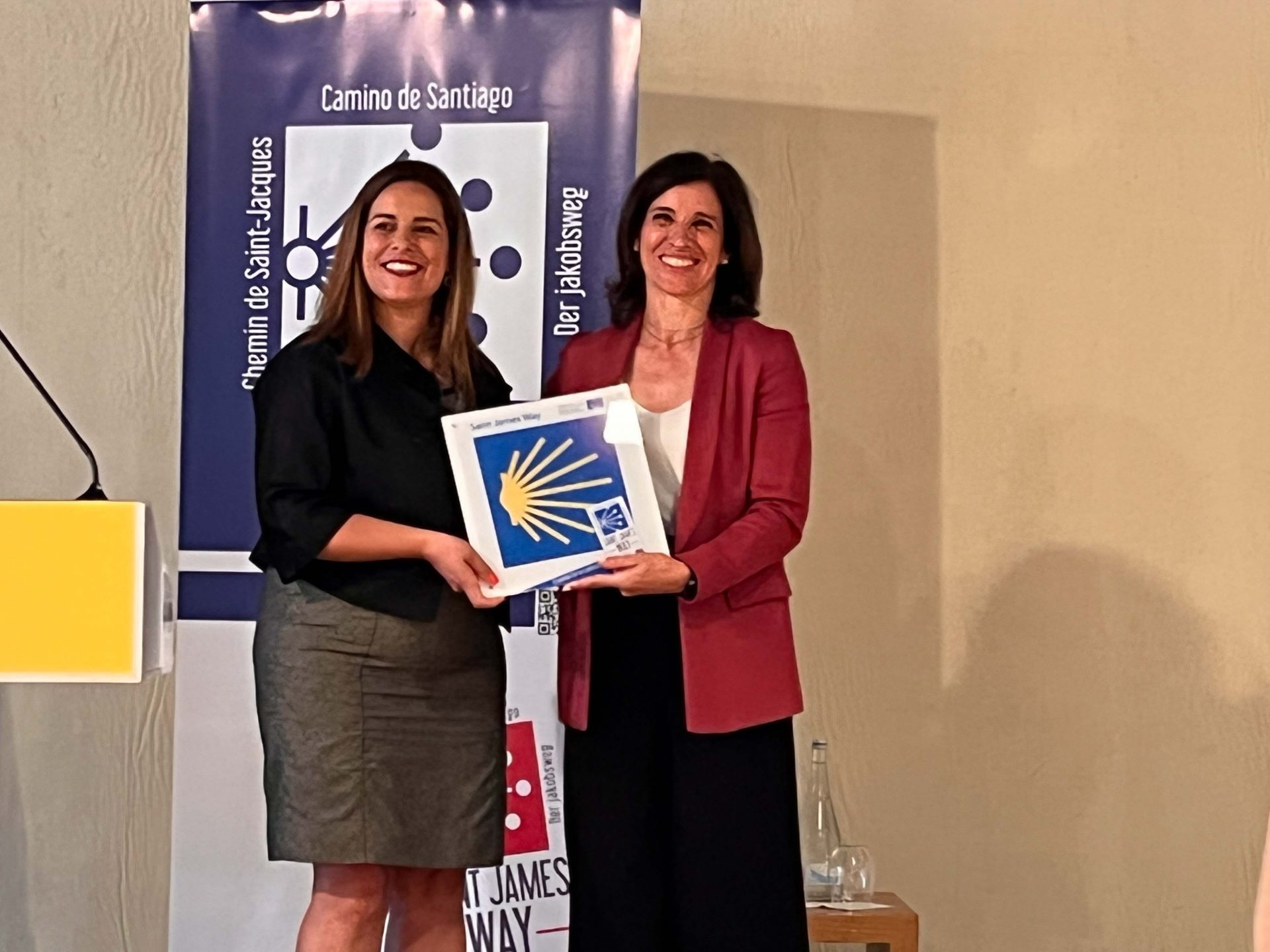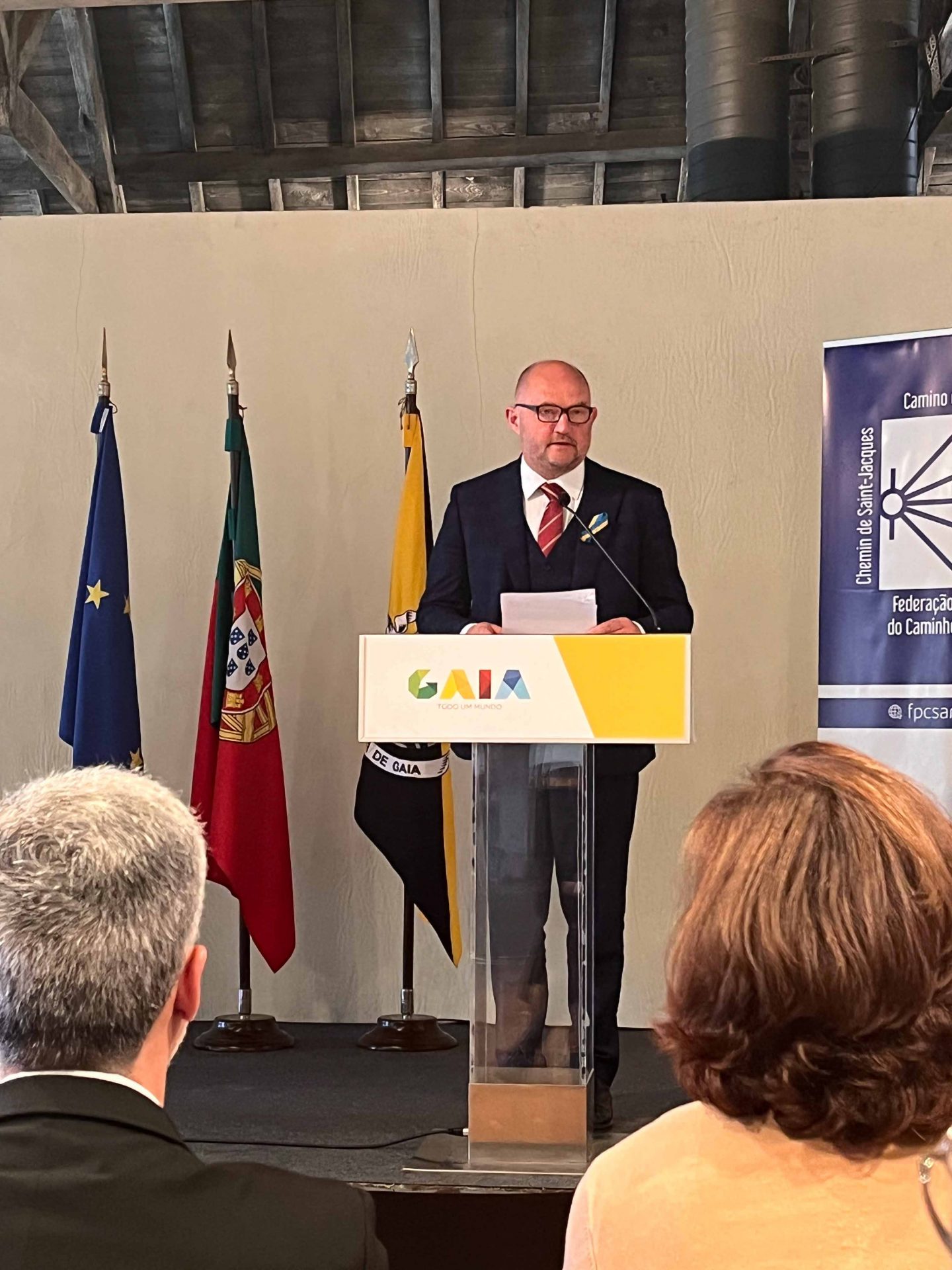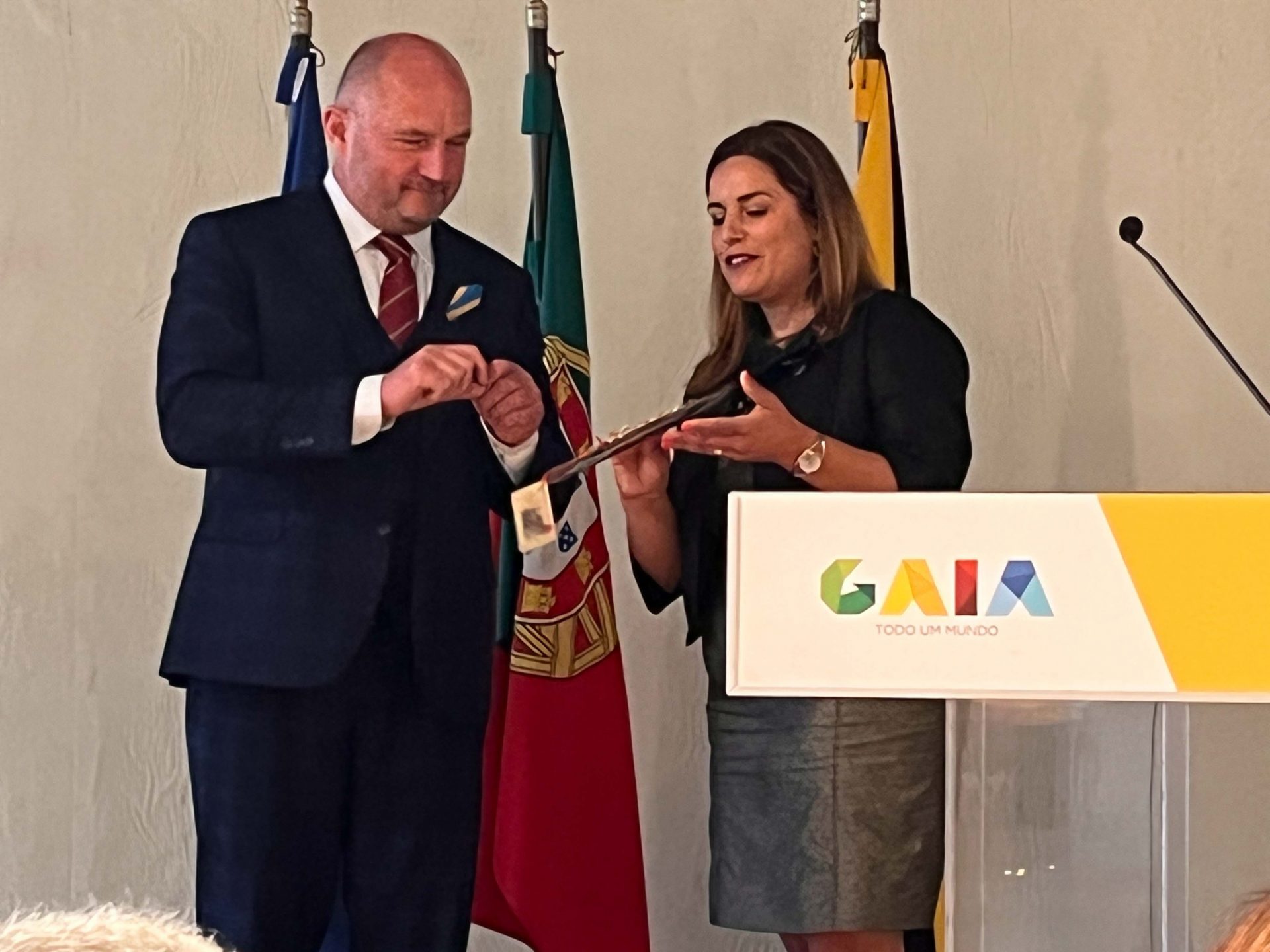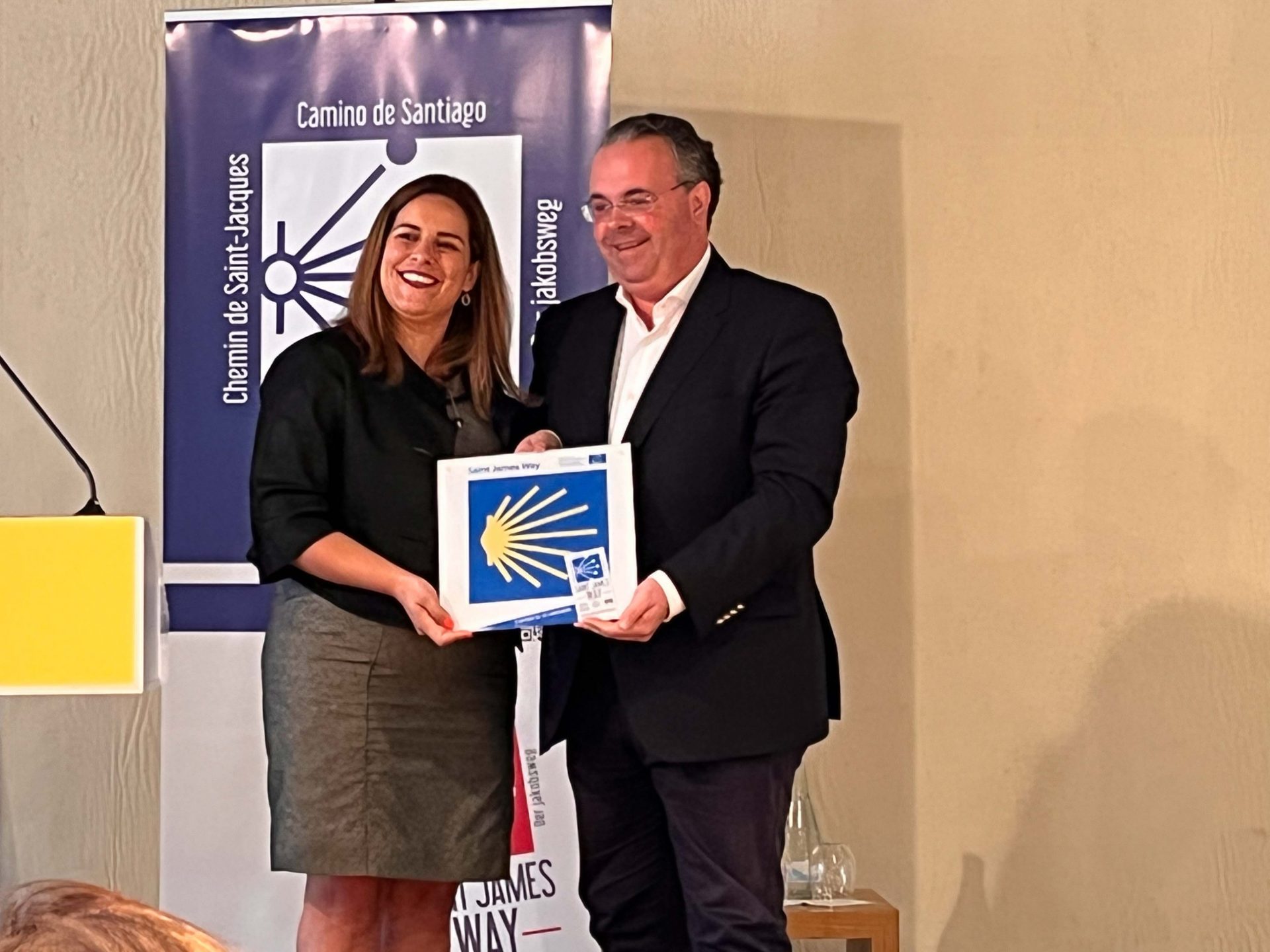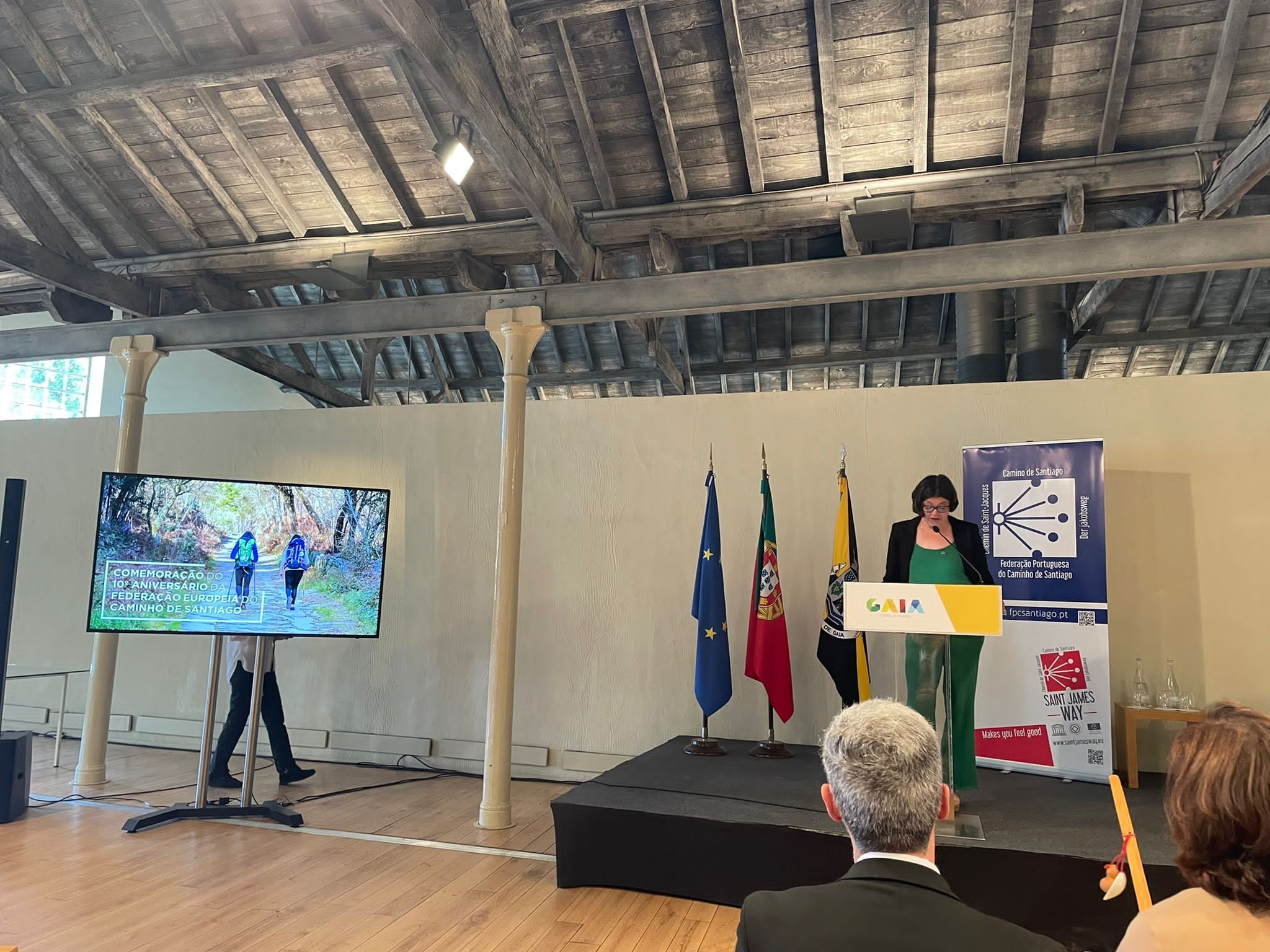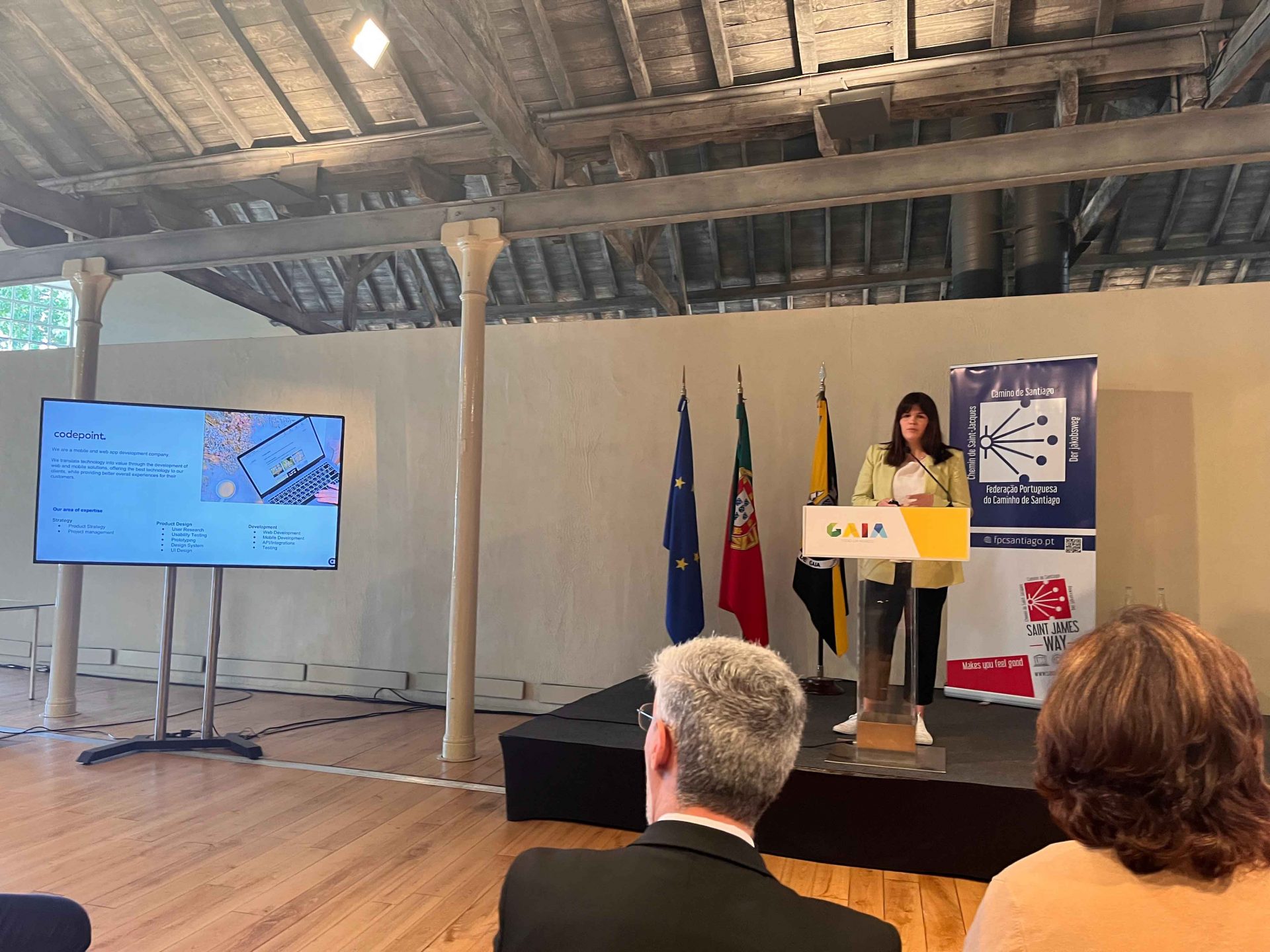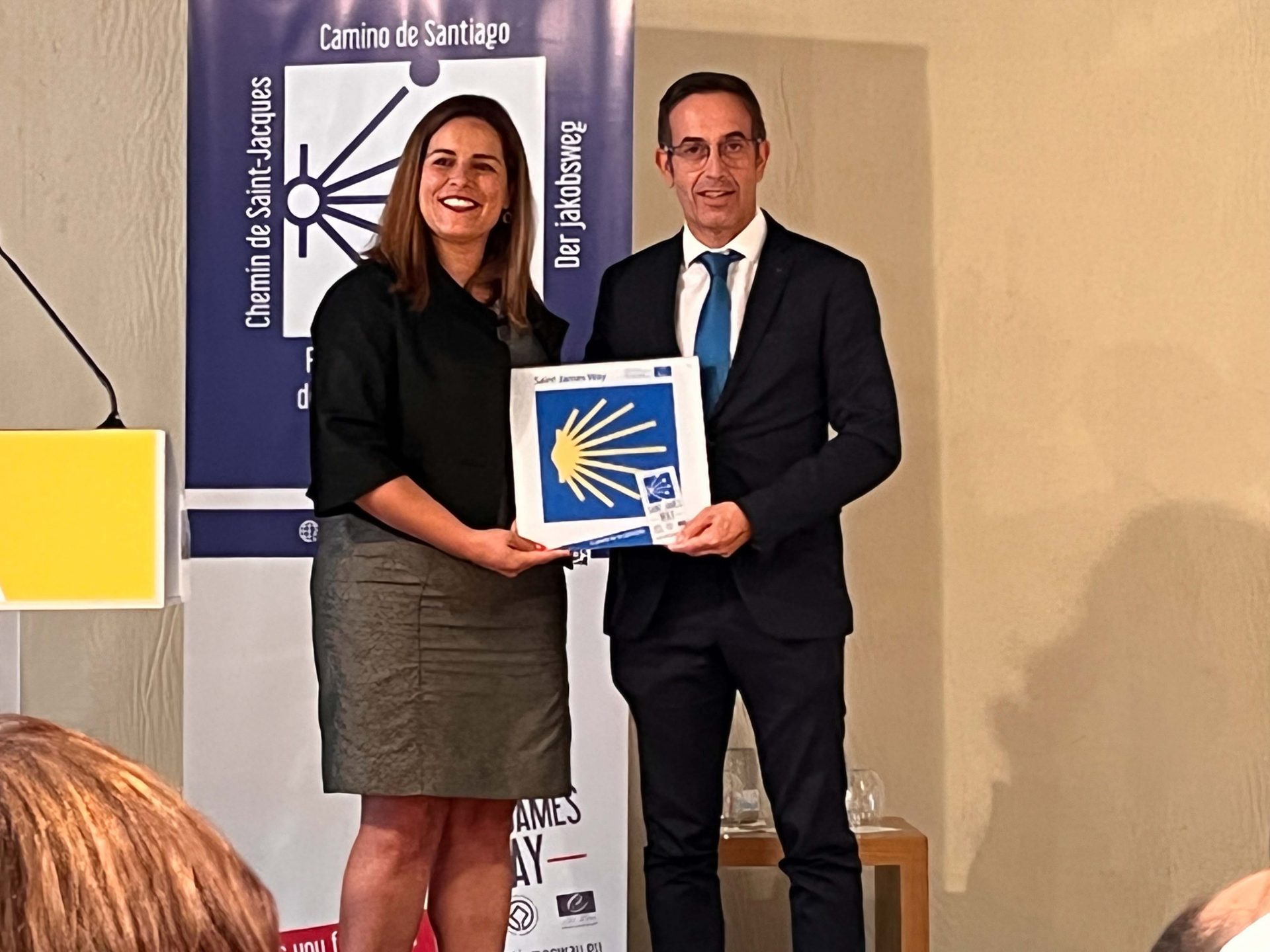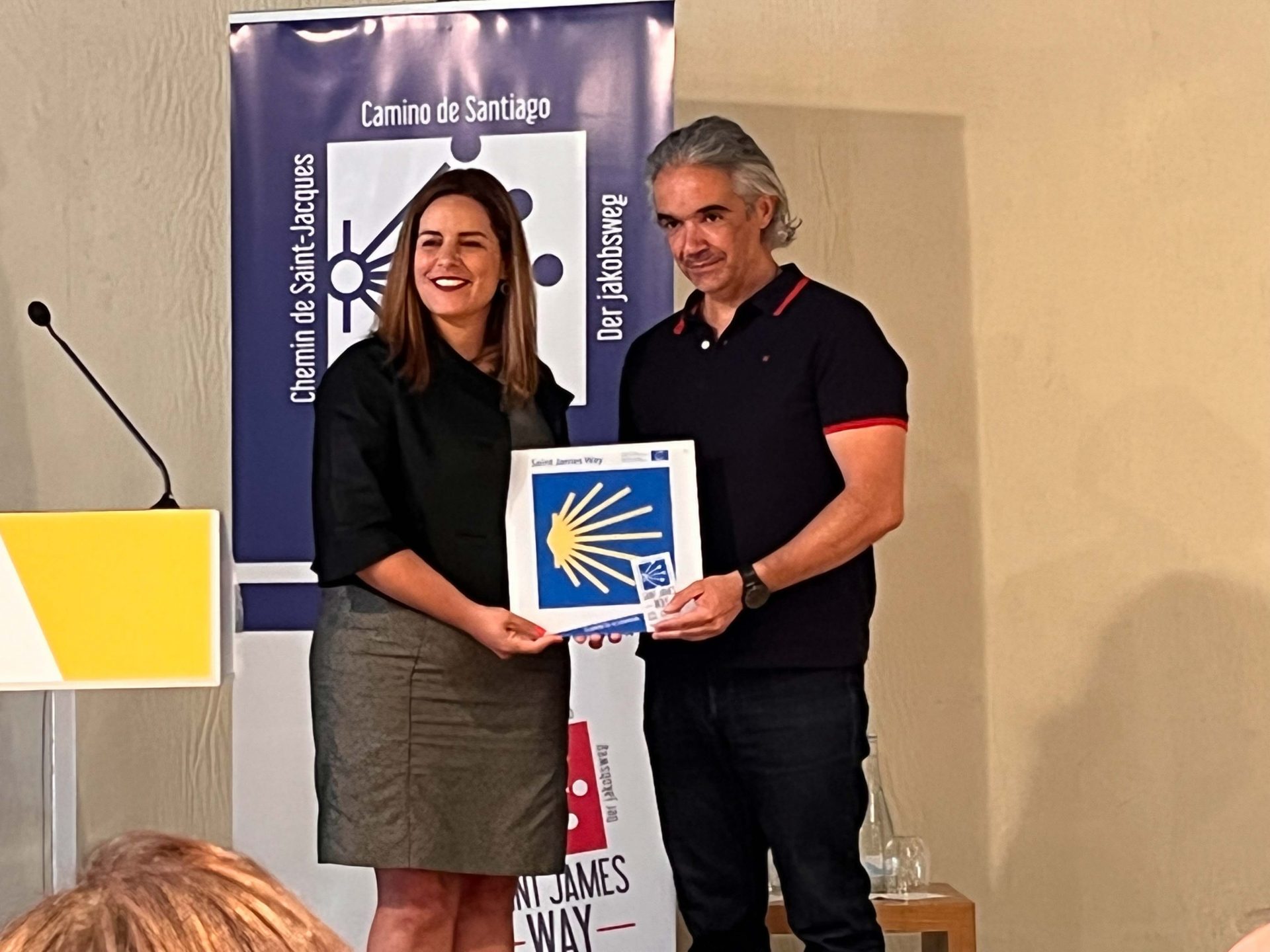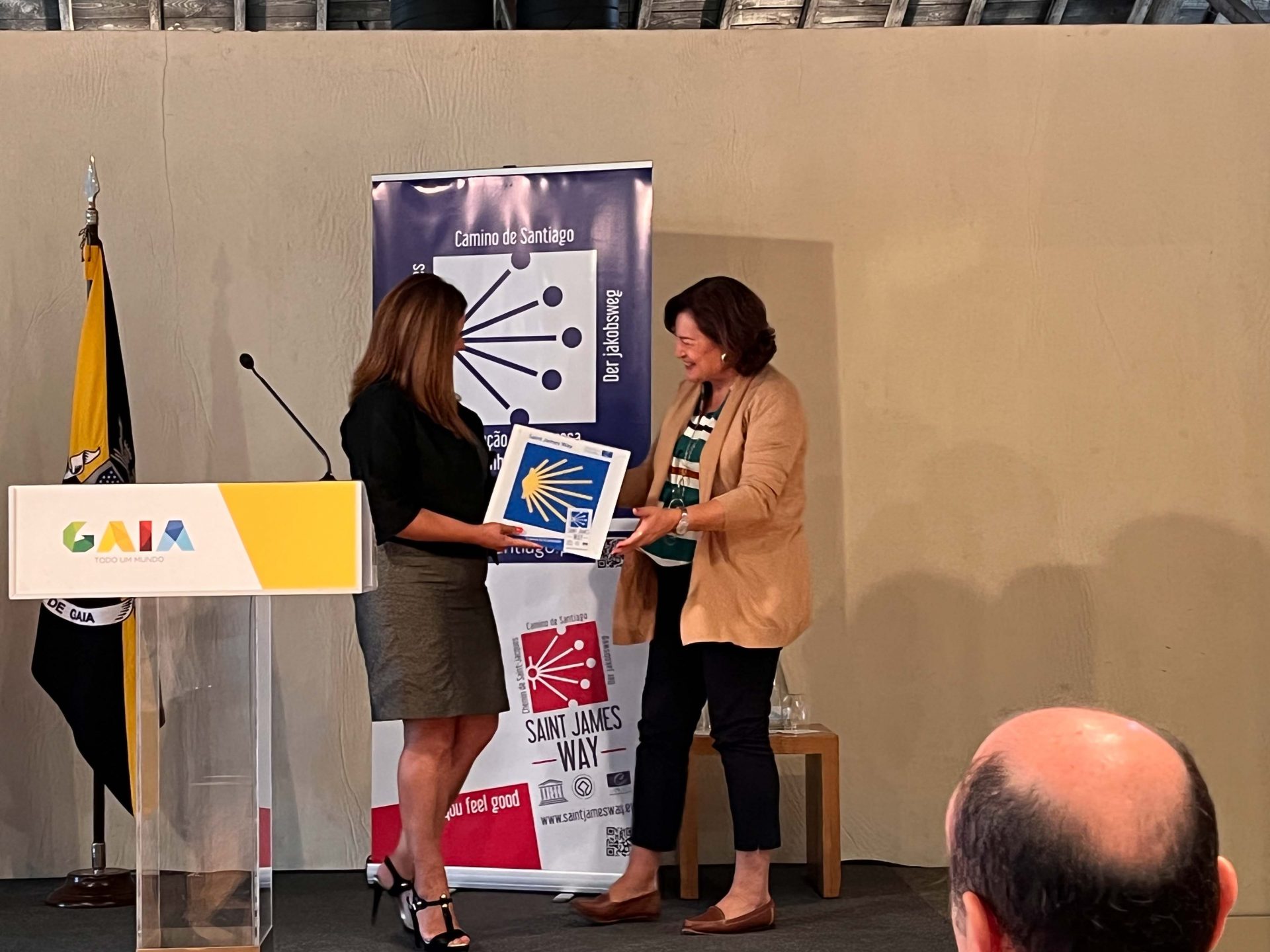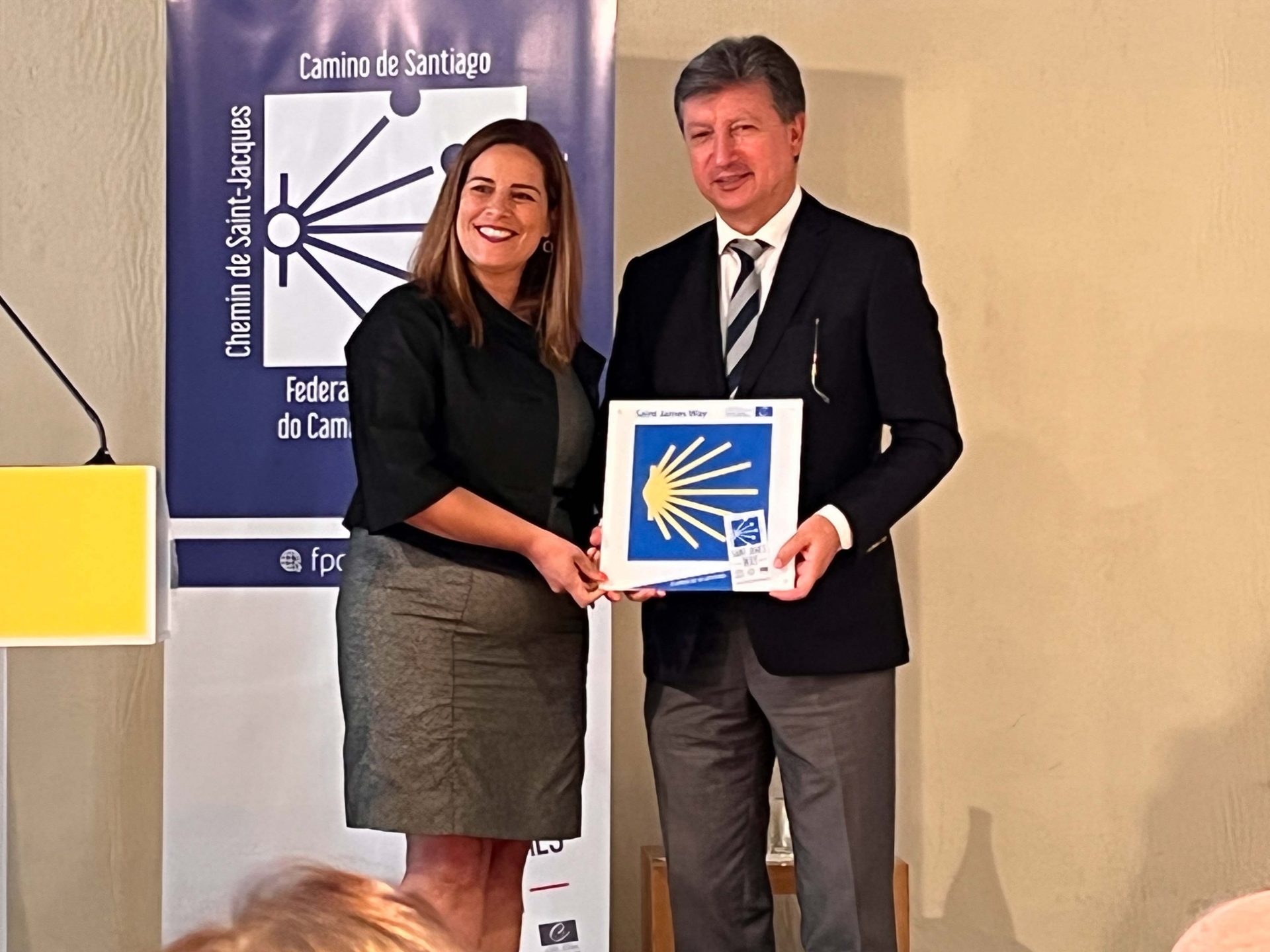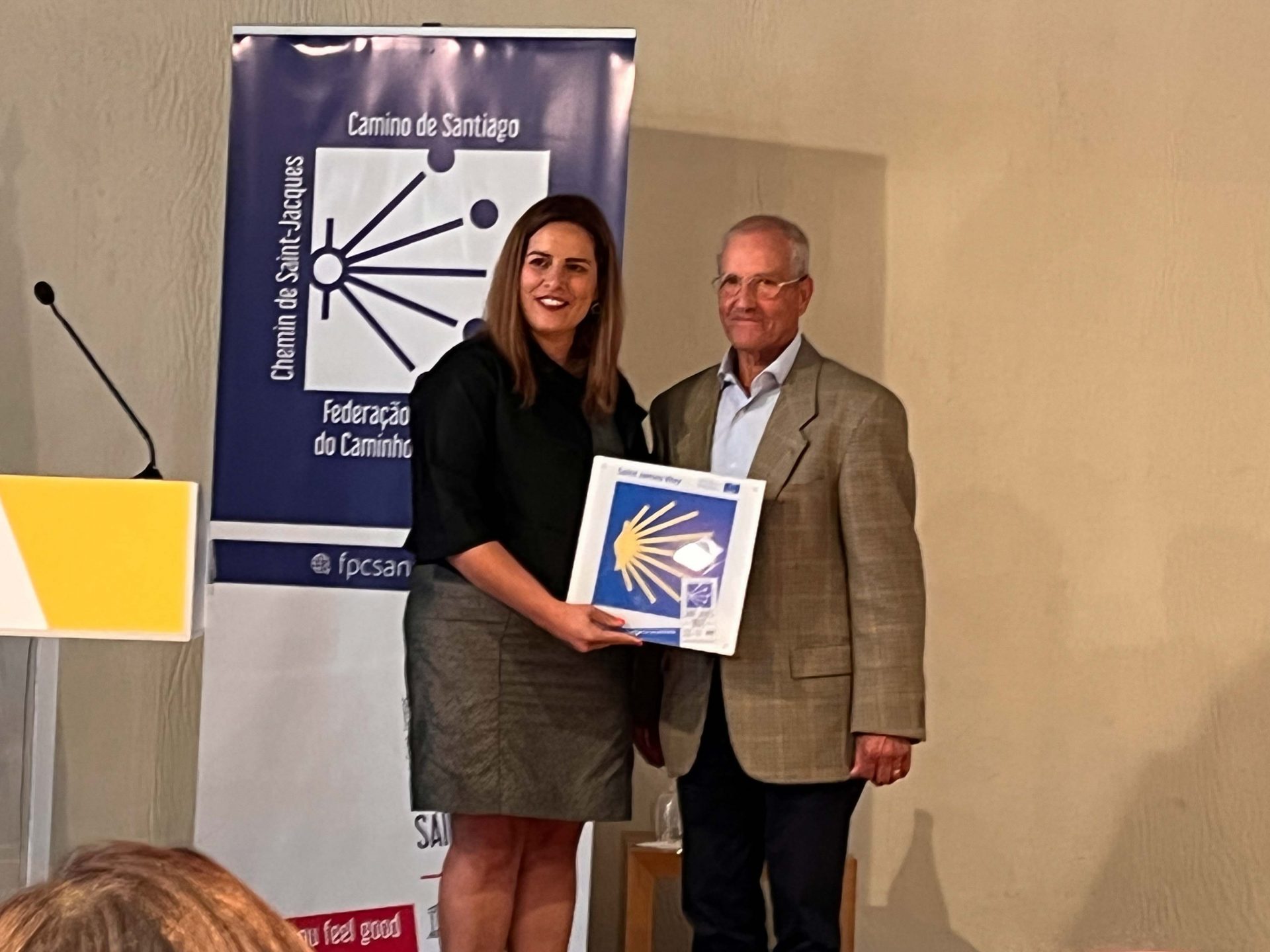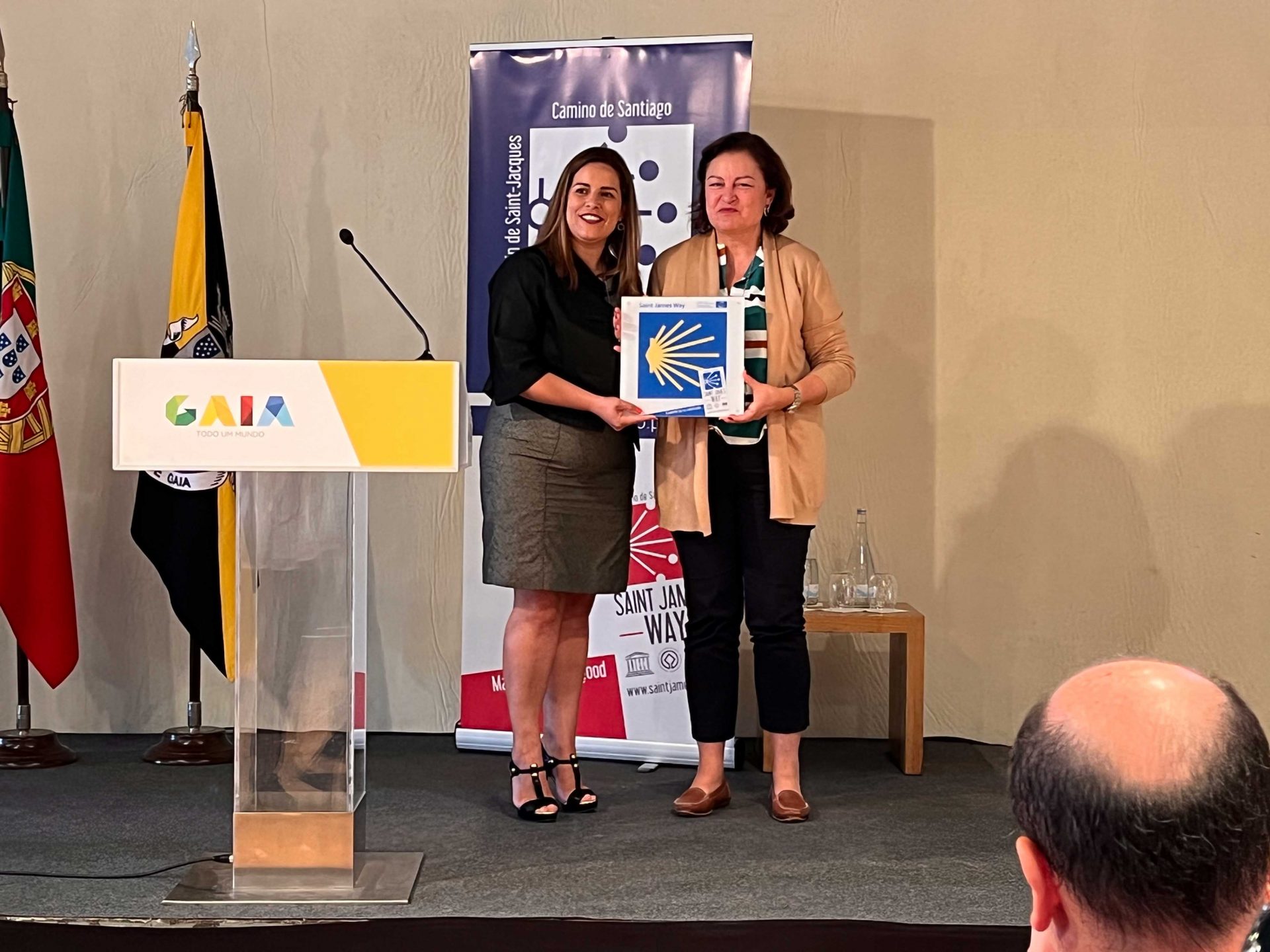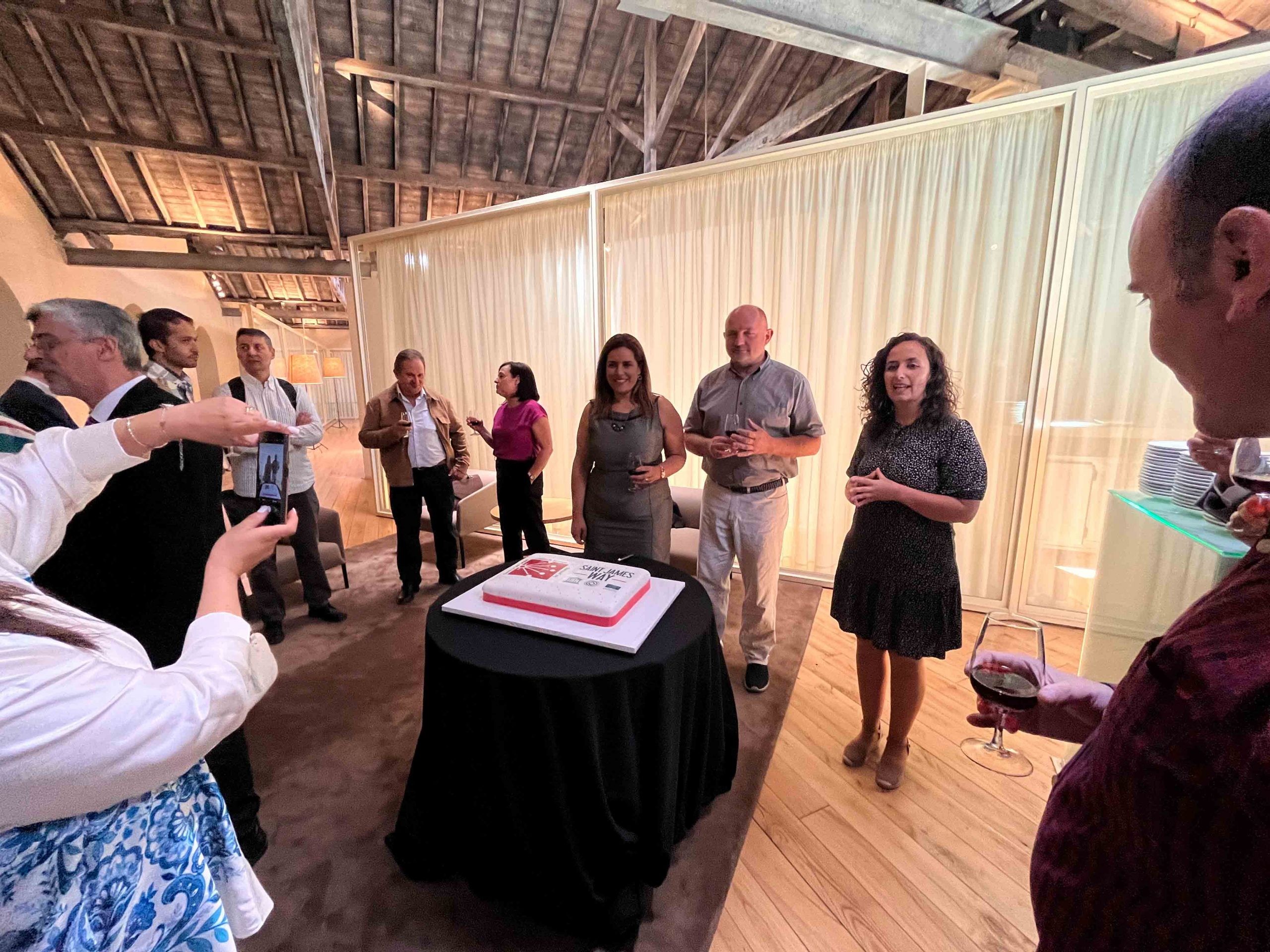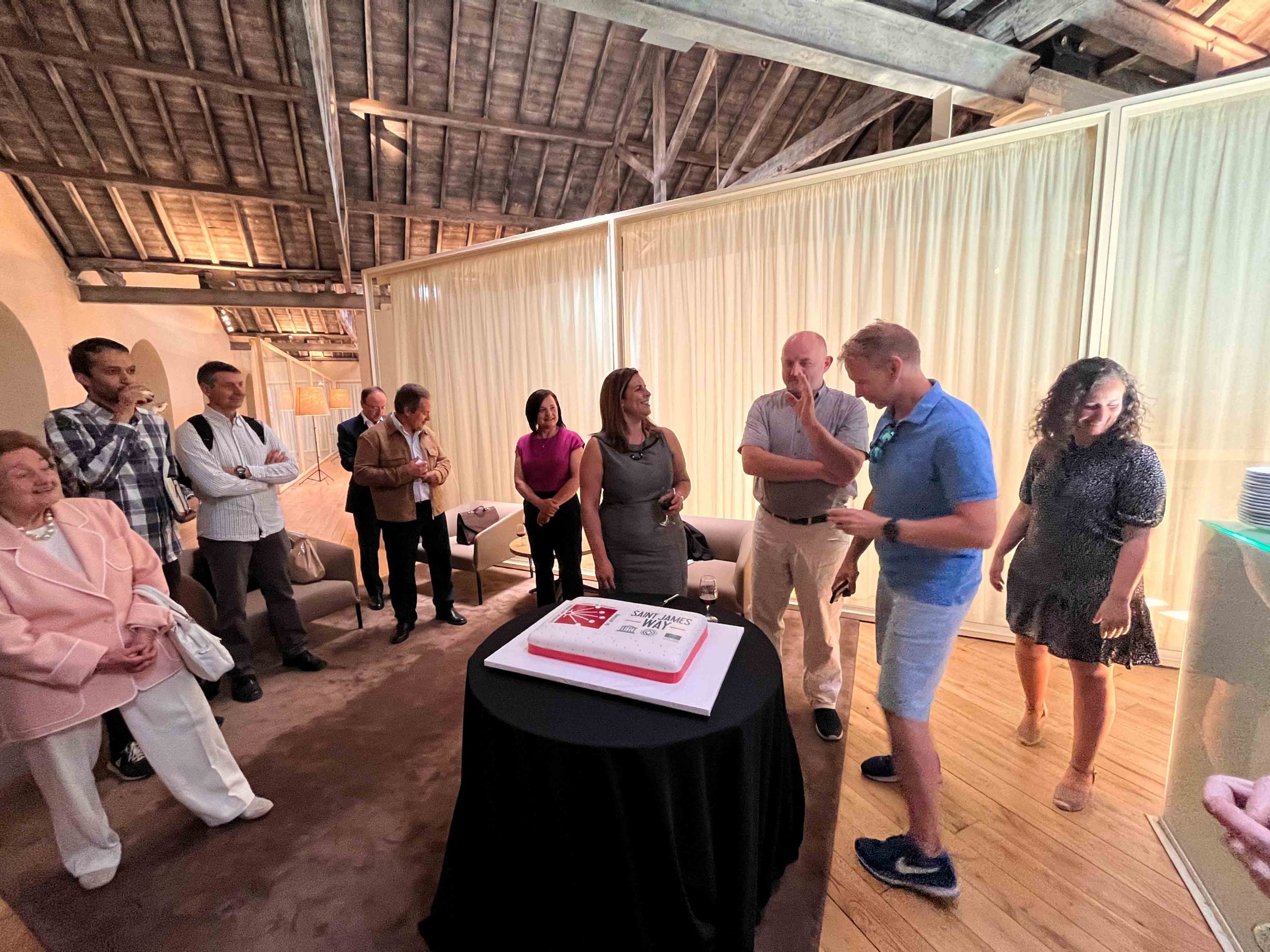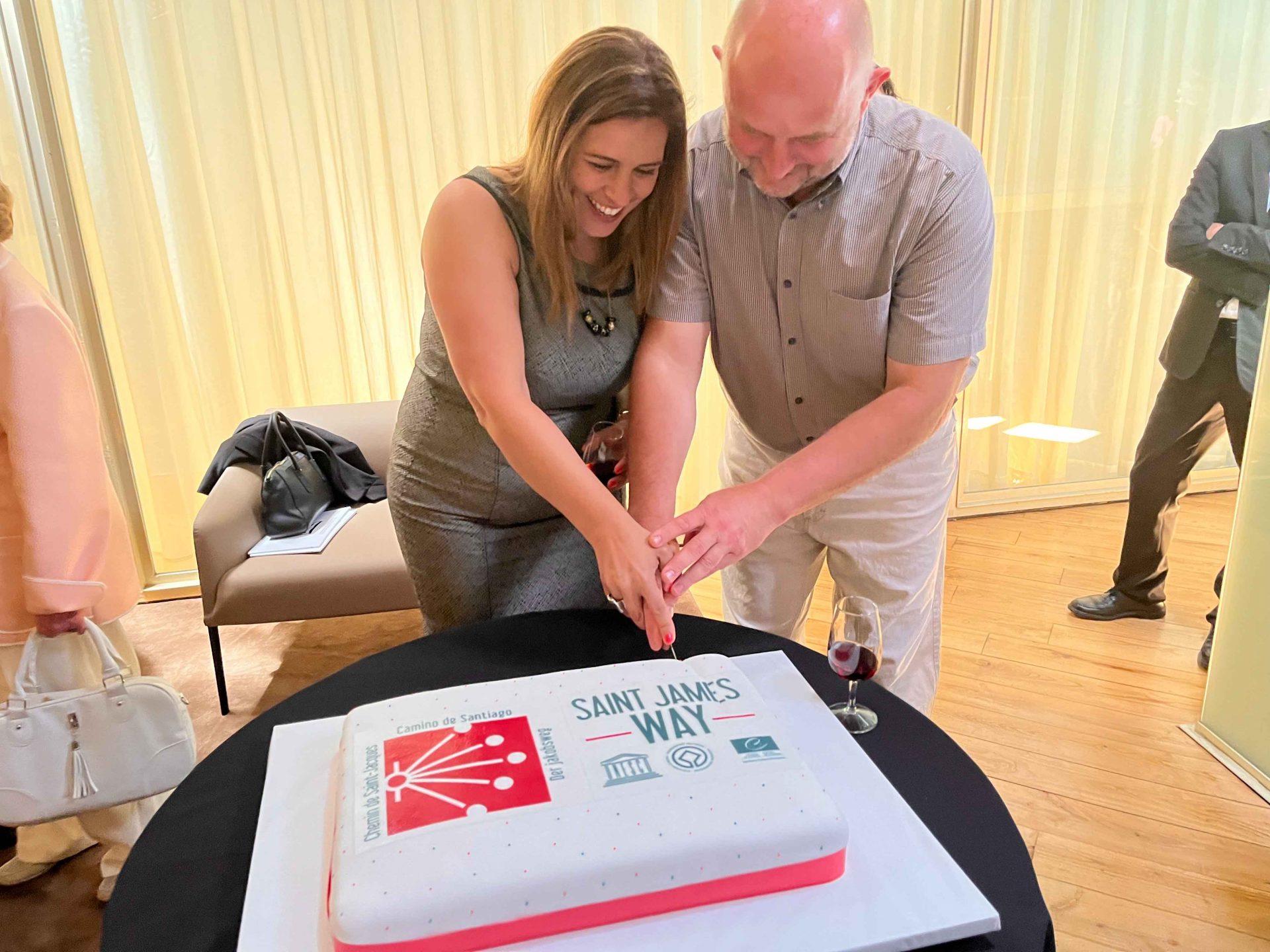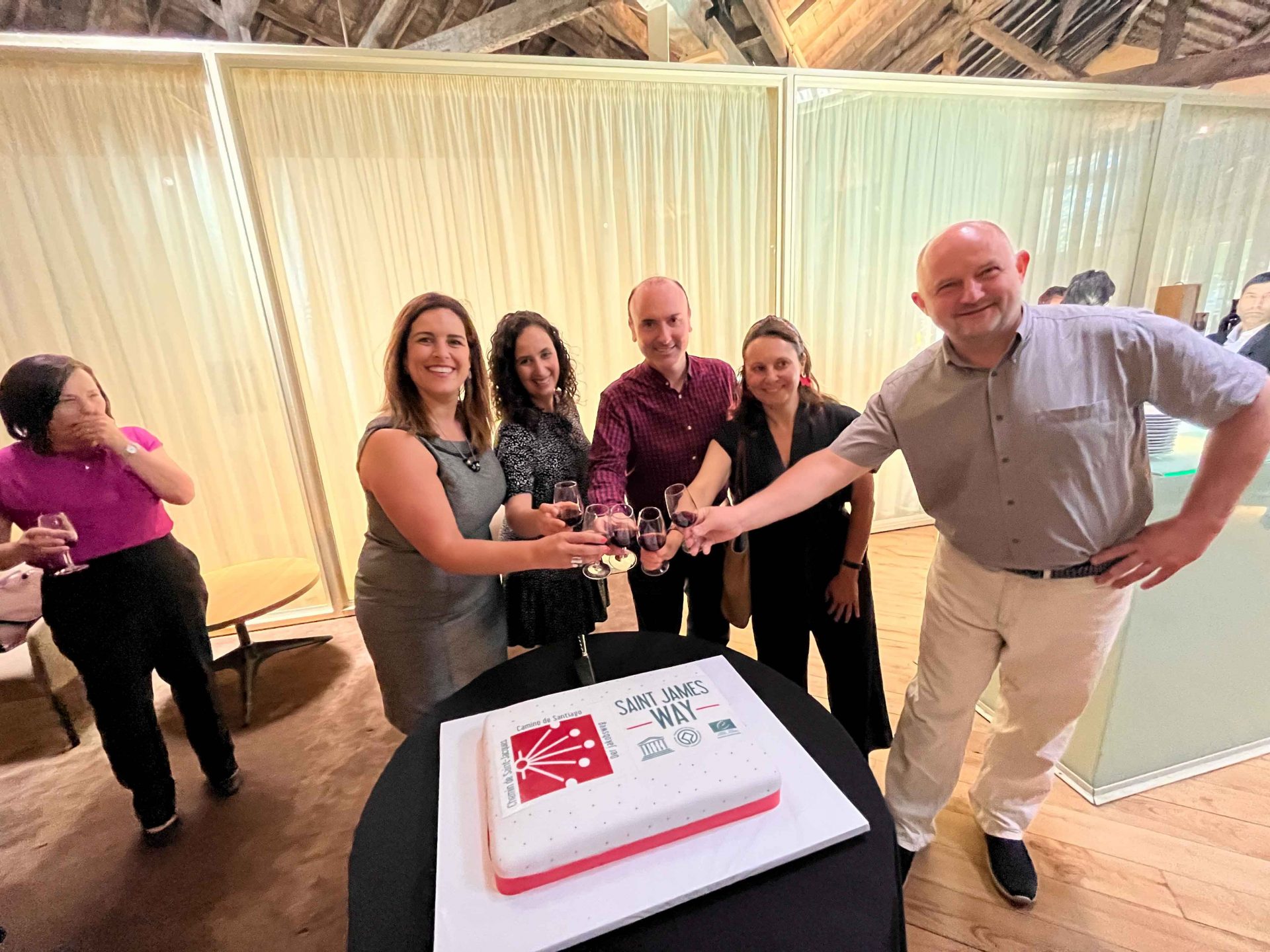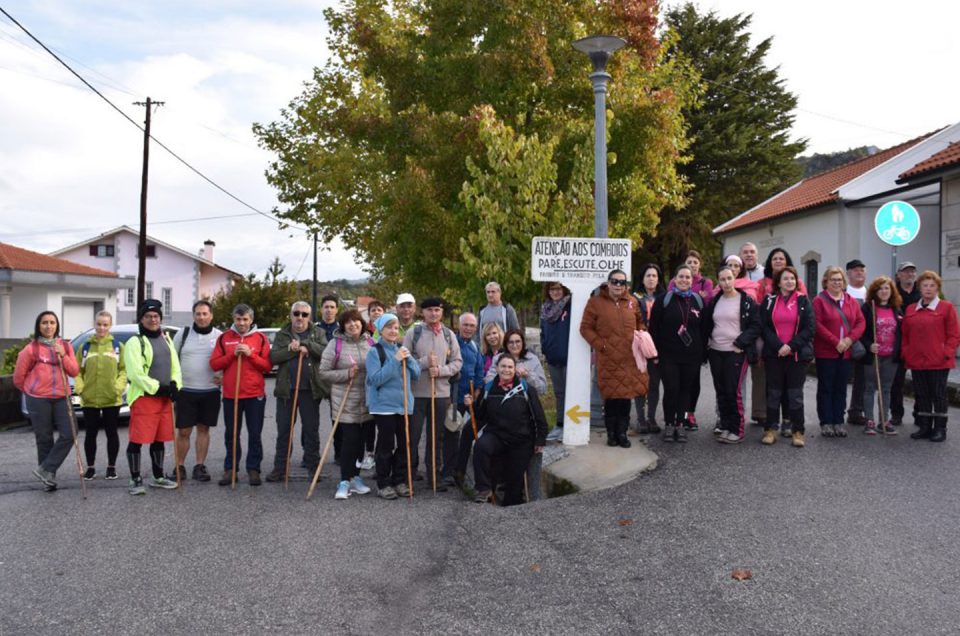The II Pilgrim Forum, held on May 16 and 17 in Viana do Castelo, counted with the participation of the European Federation of Saint James Way. Organized by the Portuguese Federation of Saint James Way and the City Council of Viana do Castelo, this event brought together pilgrims’ associations, municipal authorities, religious entities and representatives of civil society to discuss the future development of the Pilgrims’ Routes to Santiago in Portugal and Europe. Among them were the president of the European Federation of Saint James Way, Ildefonso de la Campa Montenegro, and the representative of the Council of Europe, Eladio Fernandéz-Galiano, who shared their vision and experience on the subject.
A meeting to discuss the future development of the Pilgrims’ Roads to Santiago in Portugal and Europe
During the forum, which took place in the Municipal Library of Viana do Castelo and in the Dr. Francisco Sampaio Auditorium of the School of Technology and Management of the Polytechnic Institute of Viana do Castelo (ESTG-IPVC), several strategic issues for the development of the Way of St. James, both in Portugal and in Europe, were addressed. From the certification of the Way as the first Cultural Route of the Council of Europe to the challenges faced by municipal authorities in its management, the event was a platform for the exchange of ideas and experiences among participants.
Showcasing the importance of the Way of St. James as a European cultural heritage of great relevance, the forum was attended by leading national and international experts. In addition to the conference sessions and round tables, the event also included practical activities, such as a certified training day for professionals in the tourism sector. The documentary “Nuestro Camino” (Our Way) and the book “Caminos que hago míos” (Roads I make my own) were also presented, offering attendees a deeper insight into the rich history and culture of the Camino de Santiago.
The attendees agreed in highlighting the success of the Forum, which is consolidated as a meeting and reflection space for all the actors involved in the promotion and development of the Way of St. James in Portugal and throughout Europe.
Check all the information about the II Pilgrim’s Forum on the website of the Portuguese Federation of the Pilgrims’ Roads to Santiago www.fpcsantiago.pt/eventos
